Marie Claire UK Sustainability Awards 2022: Fashion winners
From directional denim to sustainable swimwear, meet the forward-thinking fashion brands reducing the environmental cost of our wardrobes right now
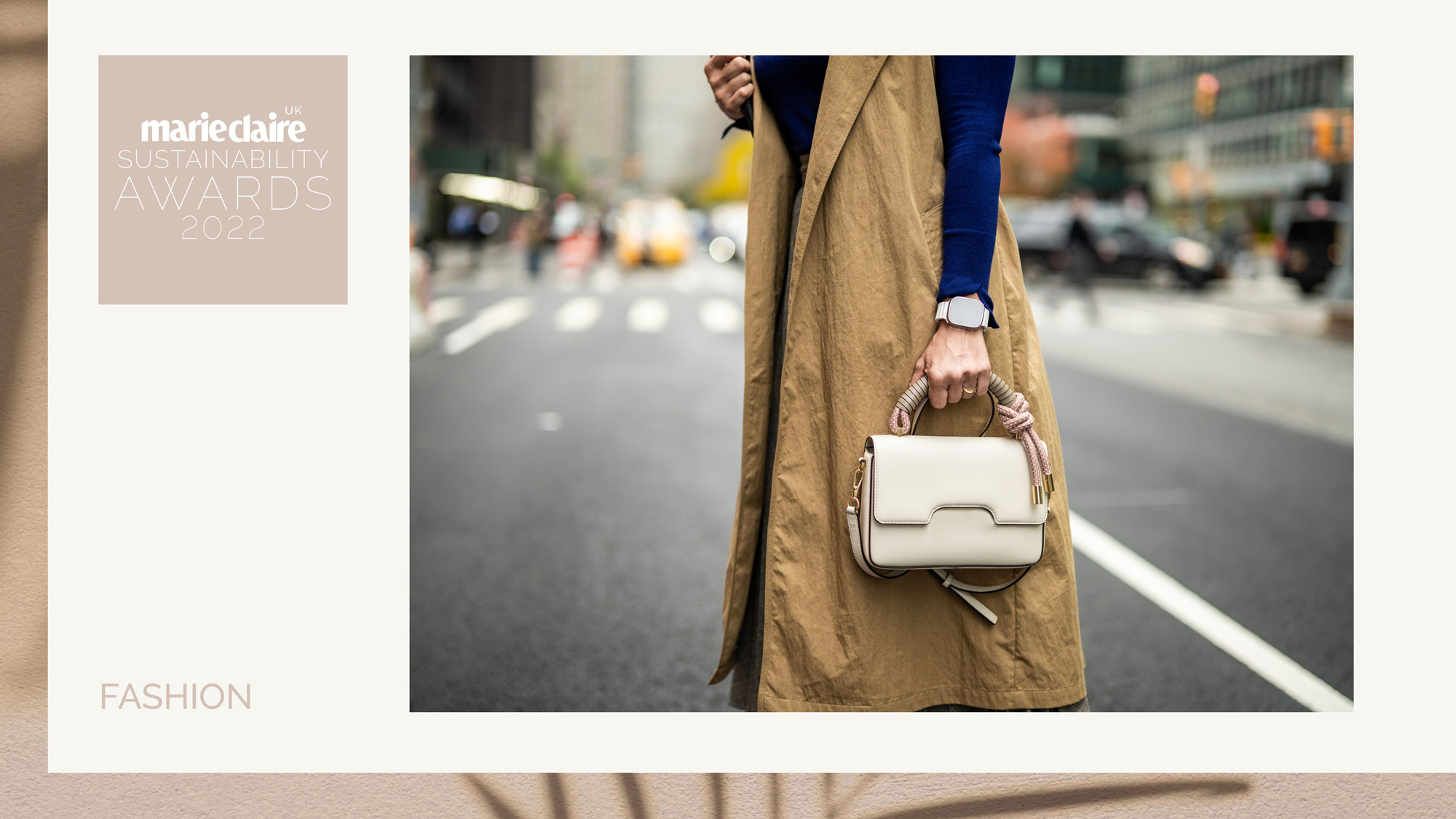
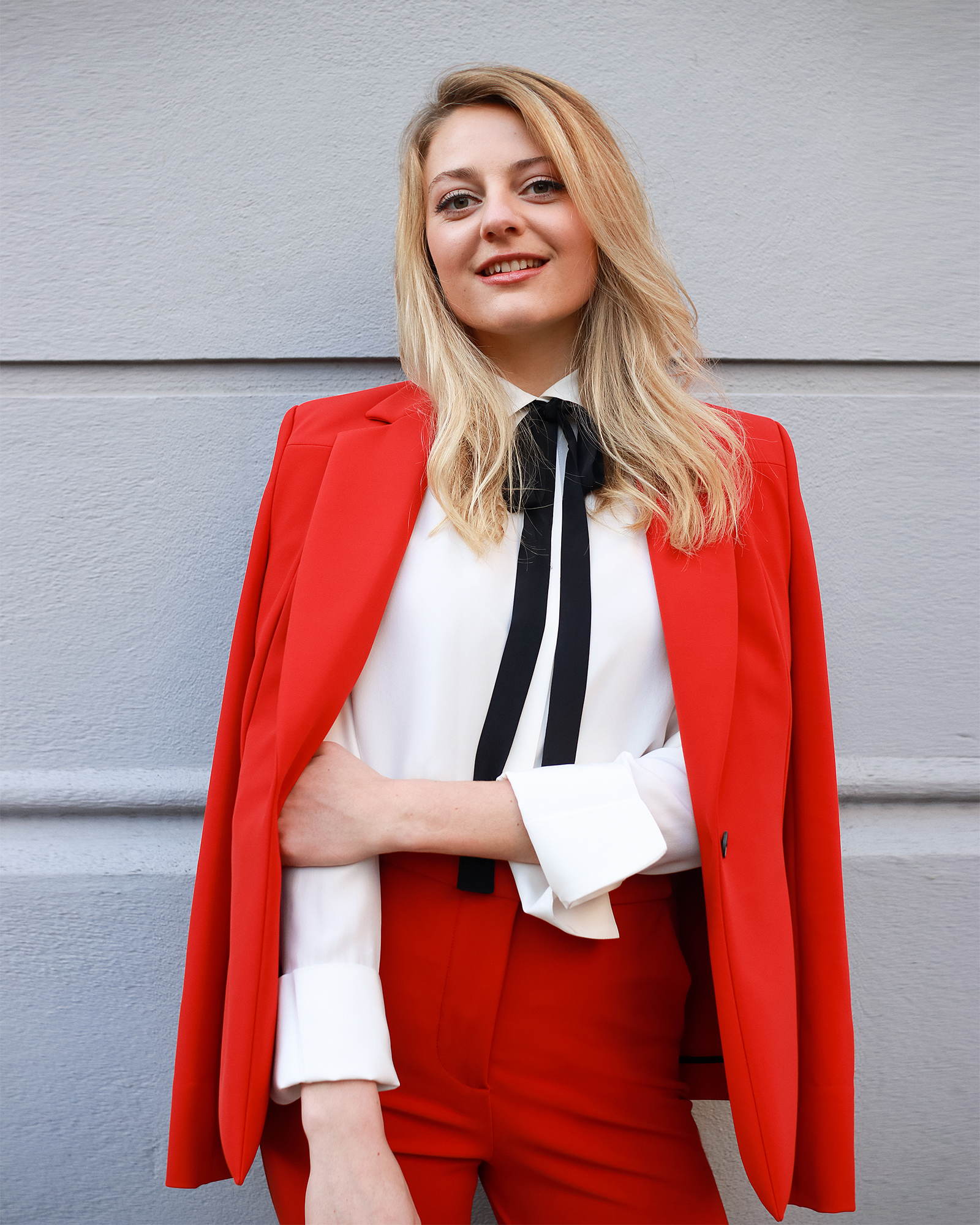
From directional denim to sustainable swimwear, meet the forward-thinking fashion brands reducing the environmental cost of our wardrobes right now
It’s not really news to anyone that fashion is a major contributor to climate change. In fact, as the second most polluting industry in the world, fashion brands – both luxury and high-street labels alike – are now vying to be more sustainable.
From upcycling and renting to choosing garments made from recycled polyester or discarded fabrics, there’s been a seismic shift away from fast fashion. What’s more, these innovative brands are devoted to repurposing old clothing to craft new designs, and coming up with carbon-neutral alternatives to reshape fashion into a less wasteful industry. Time to meet the Marie Claire UK Sustainability Awards 2022 Fashion winners…
Marie Claire UK Sustainability Awards 2022 Fashion winners
Best sustainable denim brand
Winner: FRAME
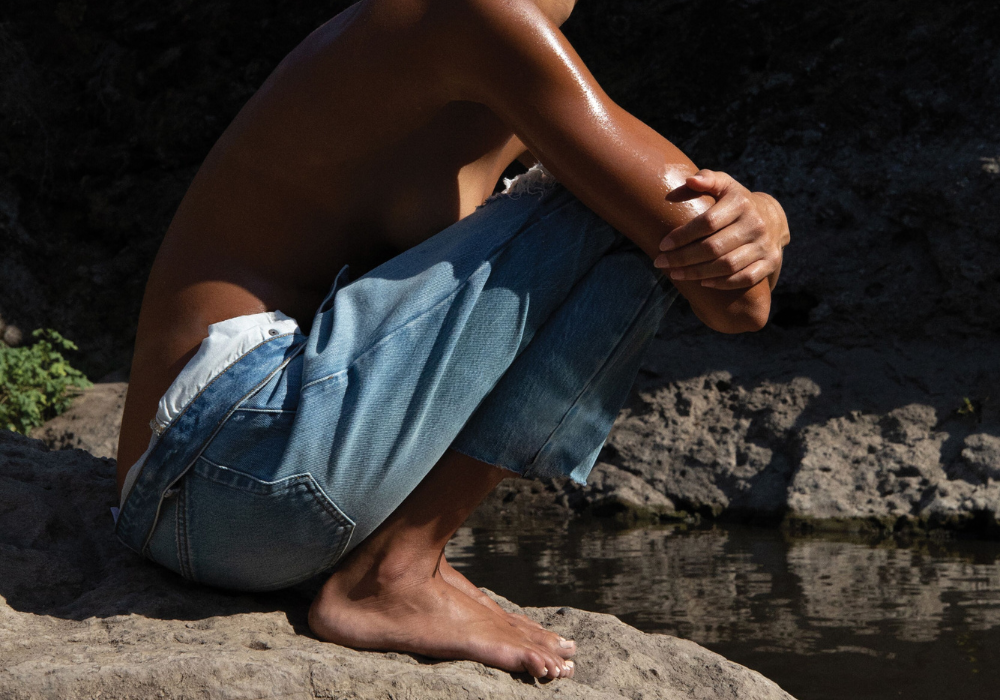
Denim is considered one of fashion’s most environmentally damaging categories. Why? Denim is made from cotton, and most cotton requires huge amounts of water to produce.
Enter FRAME, which recently launched its Pure collection. Made with 100% biodegradable organic cotton, it uses 98% less water in its production compared to traditional denim processes. Responsibly washed – think no bleach, no potassium, no permanganate, no stone-washing, all while using water-saving machinery – FRAME is constantly seeking and inventing eco-conscious materials and production methods, and looking holistically at what stages in the denim lifecycle are ripe for innovation.
“The brand is disruptive not just because of its commitment to conscious and low-impact design and production, but also because the denim design aesthetic is one that has the potential to appeal to a broad but fashion-forward audience, meaning that it has the potential to attract, inspire and educate a younger generation, and impact on a broad rather than niche level,” says Emma Slade Edmondson, London-based creative director, writer, and Marie Claire Sustainability Awards judge.
Highly commended: Fanfare Label
Best sustainable swimwear brand
Winner: AWAY THAT DAY
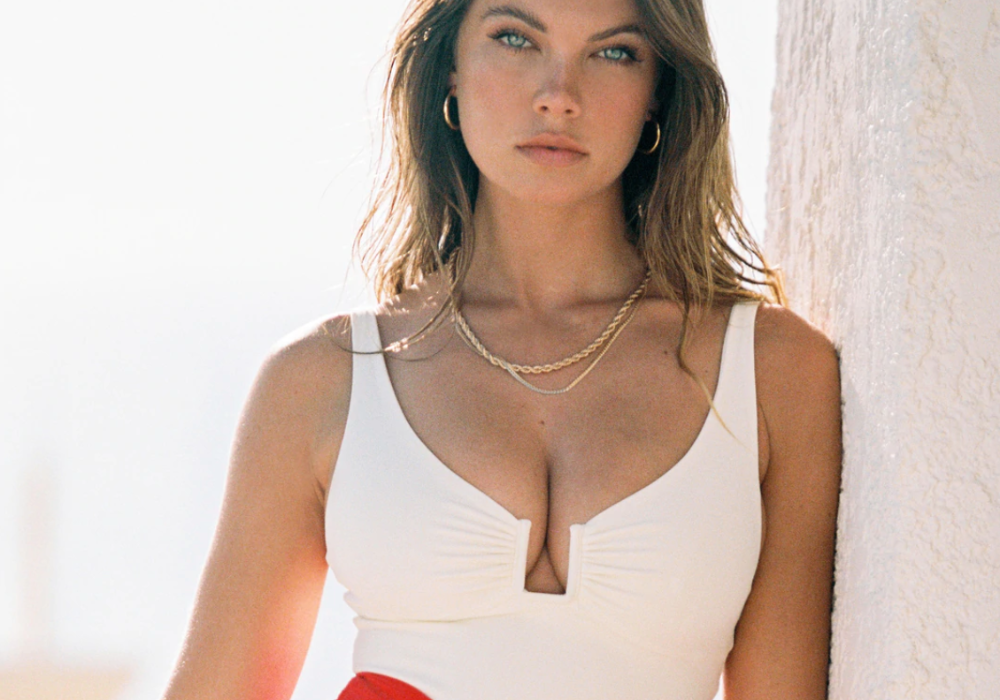
Creating stylish bikinis and one-pieces that are kinder to the environment, AWAY THAT DAY masterfully utilises Econyl – a regenerated nylon that’s collected from landfill and our oceans. The brand also runs a ‘Recycle your swim’ initiative, which offers an easy and rewarding way to recycle old, unloved or worn-down swimwear (from any brand). Also good: every order is packaged in a compostable, biodegradable bag made from corn starch, while mailer bags are crafted from 100% recycled paper.
Marie Claire Newsletter
Celebrity news, beauty, fashion advice, and fascinating features, delivered straight to your inbox!
“Any brand made in the UK gets a thumbs up from me, and I especially like AWAY THAT DAY’s slow approach to fashion. Crafting swimwear from eco-friendly, regenerated nylon and delivering their products in 100% compostable packaging – what’s not to love?” says Marie Claire’s health, sustainability and relationships editor, Ally Head.
Highly commended: Arloe
Best sustainable swimwear brand for kids
Winner: FOLPETTO
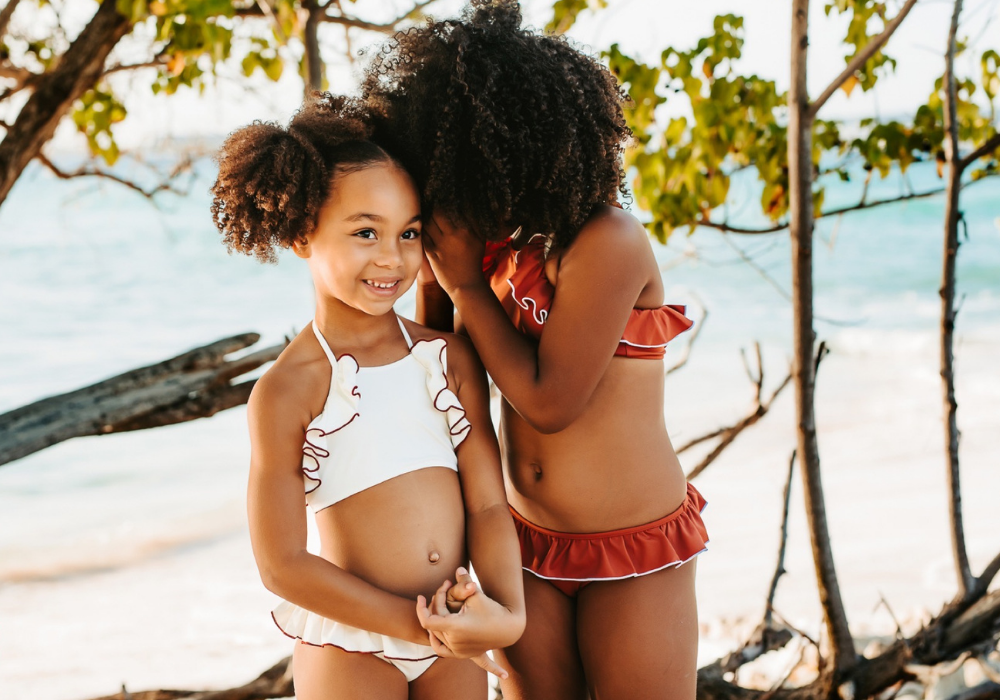
Made for children aged between 6 months to 12 years, FOLPETTO is an ethical, sustainable, UV-protective swimwear brand made with 100% recycled yarn from post-consumer materials, including discarded carpets, abandoned fishnets and other plastic waste collected from the sea.
Promoting a circular economy, the label has eliminated the use of new fibres from non-renewable origins and is committed to using renewable raw materials in all its packaging.
“A brand committed to minimising their environmental impact through every area of production and promoting a circular economy – all without compromising on the look and feel of their garments. We were impressed by their continued efforts to eliminate the use of new fibres from non-renewable origins and to shift consumer attitudes in their sector,” says Marie Claire Editor-in-Chief, Andrea Thompson.
Best sustainable underwear brand
Winner: Nudea
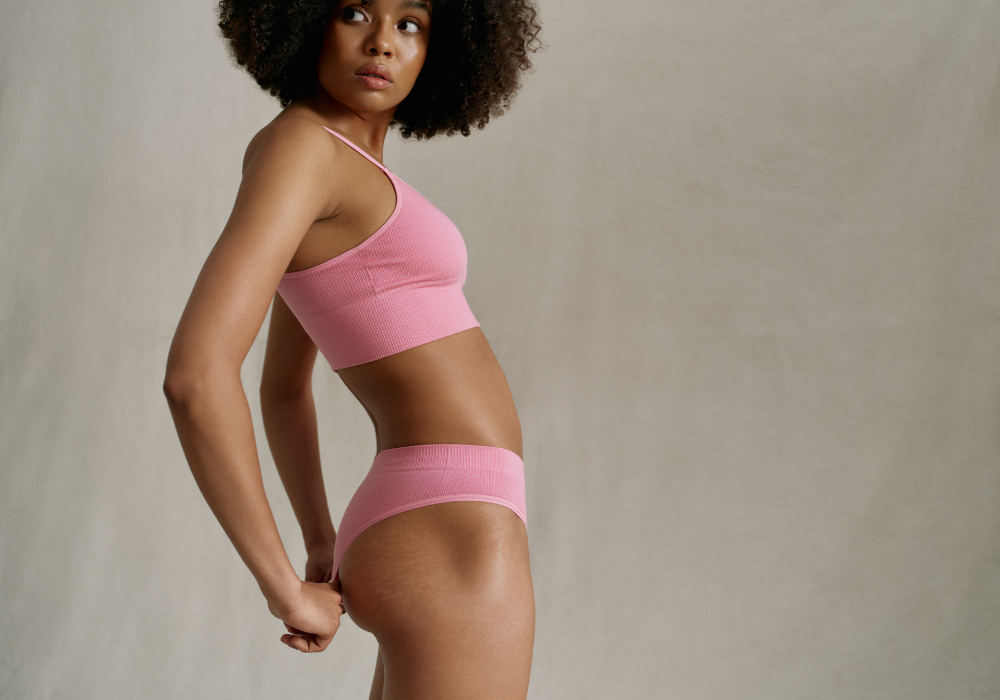
The design-led, B Corp-certified underwear brand Nudea was founded in 2019 with a focus on thoughtfully designed garments engineered for comfort and long-lasting results. As such, Nudea is a carbon-neutral company and responsibly manufactures pieces out of premium fabrics crafted from recycled yarns – all of which are sourced and manufactured within Europe.
The brand’s commitment to sustainability also includes easy-to-use tools to deliver on fit for conscious, responsible shopping, plus recyclable packaging, with a public transport-only eco-delivery option in major cities from May 2022.
“Nudea’s use of sustainable materials and commitment to garments that fit well and last years (so you can buy better but buy less), is something that is very important. I also love its bra recycling programme, which is innovative and encourages less waste,” says Natalie Glaze, founder of Stay Wild and By Glaze, and Marie Claire Sustainability Awards judge.
Highly commended: Stripe & Stare
Best sustainable high-street brand
Winner: Superdry
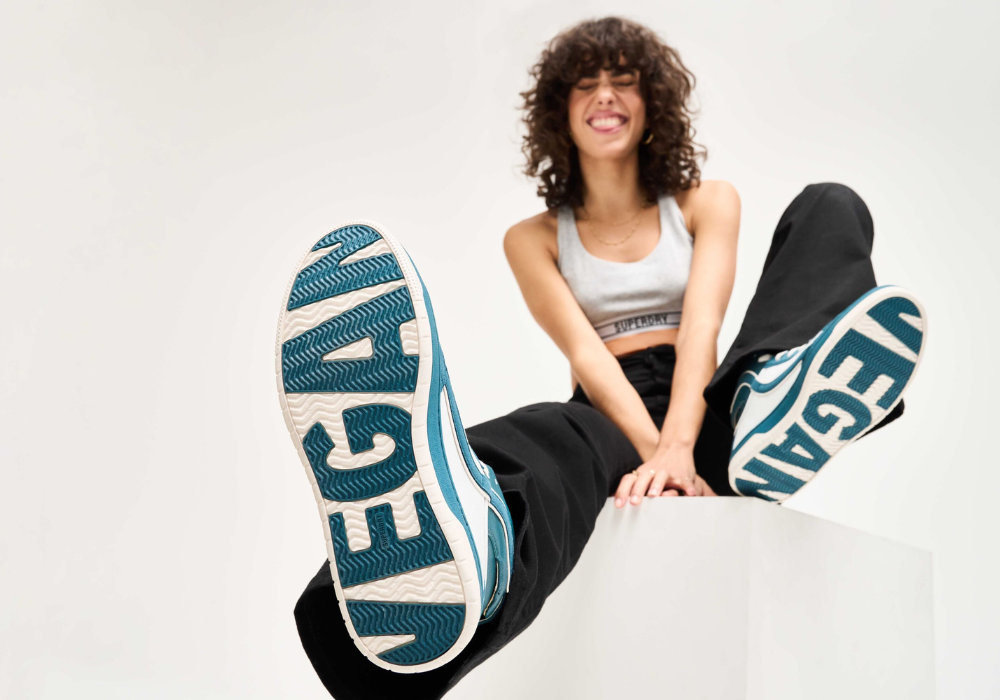
With “impressive reductions in carbon emissions over a five-year period, and a well-known global brand,” By Rotation founder and MC Sustainability Awards judge Eshita Kabra-Davies declares Superdry as the winner of the high-street category.
While the high street is full of ‘more sustainable’ promises, Superdry is clearly addressing its material impact. From launching its first 100% fully recycled collection in September 2021 (which uses up to 25% less carbon and 95% less water to produce), to using 100% recycled filling in all its padded jackets from December 2020, the label has also expanded its vegan trainers offering and switched to 100% renewable electricity across all global stores and offices.
Highly commended: OMNES
Best sustainable designer brand
Winner: Phoebe English
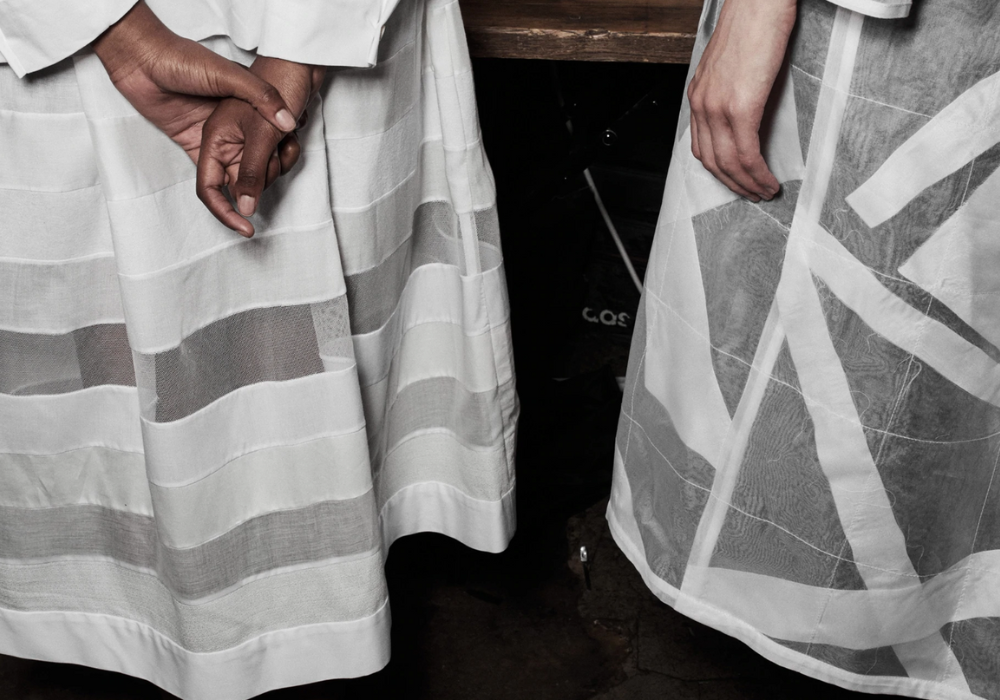
Since launching her eponymous brand a decade ago, Phoebe English has taken a pioneering approach to sustainability, whether that’s by reducing her seasonal collections from quarterly to annually, using deadstock materials or organically certified fabric, developing zero-waste pattern-cutting techniques or operating a garment-repair service.
The brand also runs educational workshops on sustainable practices – sharing its learning principles, research, supply chain information and databases – and has solely used local British manufacturing for the past decade.
“Phoebe is a definite lead in this regard,” says Caroline Rush, chief executive of the British Fashion Council and a Marie Claire awards judge. “She has not only focused on [the sustainability of] her own brand, but has also created a community through WhatsApp to share insight with like-minded brands and individuals.”
Highly commended: Reformation and EVARAE
Best sustainable accessory brand (handbags)
Winner: Mashu
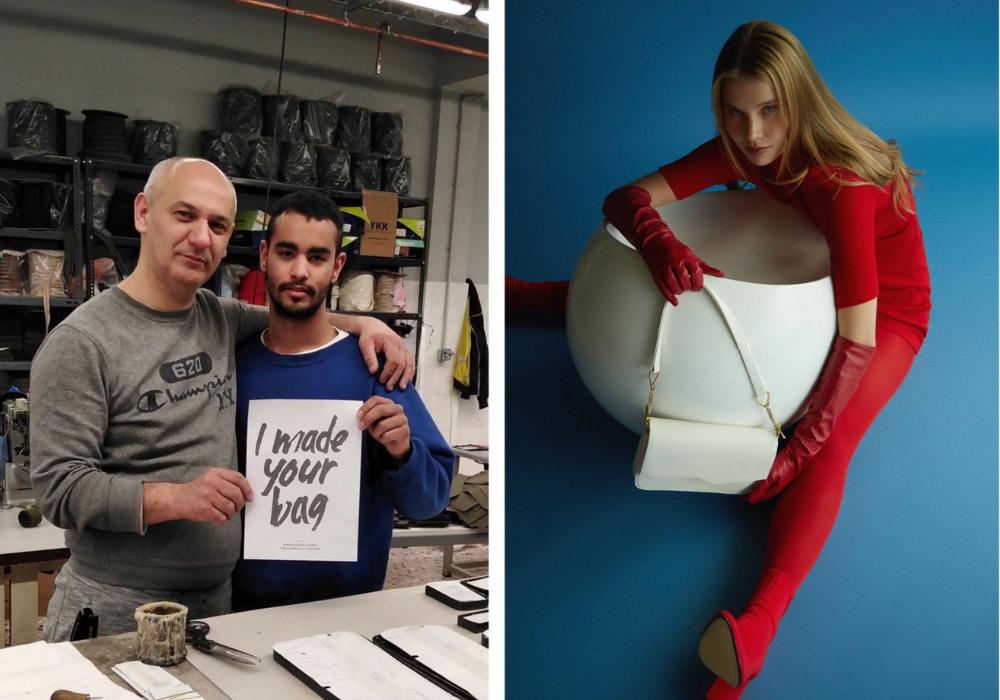
Rejecting the fast-paced nature of the fashion wholesale calendar (which expects constant newness and a minimum of four collections per year), Mashu decided to slow things down with a new seasonless structure and remain aligned with its mission to create desirable accessories that don’t harm people, animals or the planet.
PETA-approved, Mashu creates bags using Piñatex (a leather alternative made from the leaves of the pineapple plant), BioVeg (a recycled polyester made from plastic bottles and plant-based materials) and recycled cotton, plus a whole range of other vegan materials, including grape and apple ‘leathers’.
“Not only ethically created, but also beautiful and chic to style with any outfit over and over again,” adds Kabra-Davies.
Best sustainable accessory brand (footwear)
Winner: EMU Australia
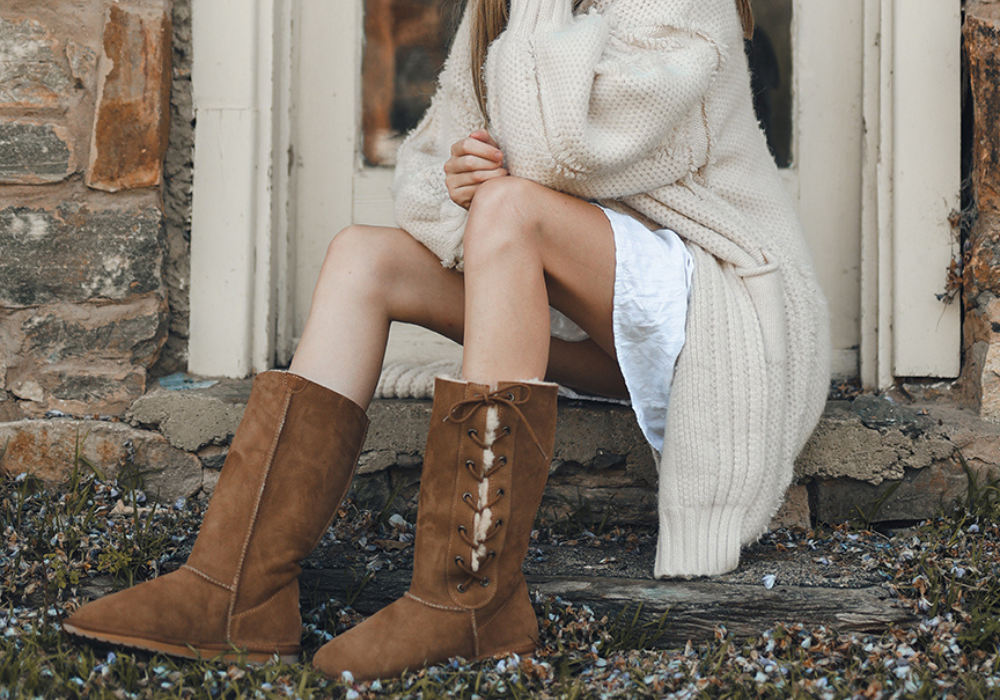
Iconic footwear brand EMU Australia may have started off as post-surf essential with its natural sheepskin boots, but now the label makes a whole range of high-quality footwear from merino wool, leather and Australian sheepskin – always working with natural materials and not creating or consuming too quickly.
“EMU Australia has had sustainability at its core from the very beginning and is an indisputable future-shaper in ethical fashion,” says Marie Claire features editor and judge, Jenny Proudfoot. “Its commitment to making quality products that last is commendable, all while using the finest natural materials (recyclable, reusable and biodegradable), employing the most sustainable practices, and working closely with ethical Australian farmers. Not to mention, the end result is perfection – my go-to for a comfy and luxurious slipper.”
Best sustainable accessory brand (eyewear)
Winner: Good Citizens Eyewear
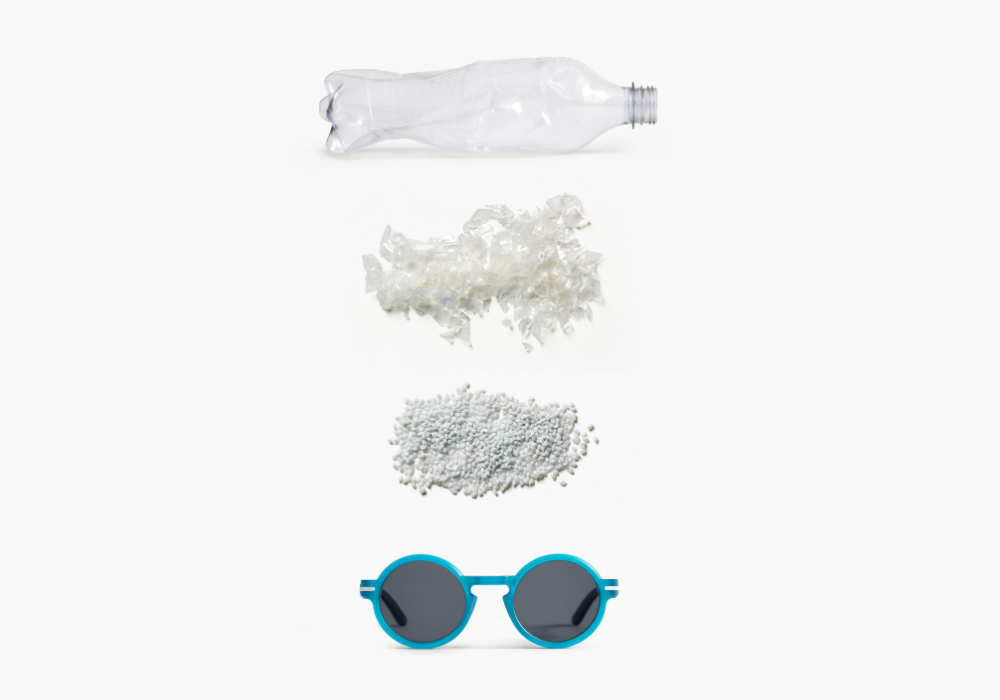
If you’ve switched working from the office to WFH, chances are you’ve ditched your contacts and become reacquainted with glasses. Looking for a new pair? Meet Good Citizens Eyewear.
Born over a family dinner, Harry (8) and Archie (6) were upset about the plastic waste piling up in the world and pestered Mum and Dad to step up. Together, they devised a plan to help untrash the planet and launched Good Citizens Eyewear, which turns one single-use bottle into a pair of 100% recycled frames. Each pair is also carbon-negative, locking away 10kg, which is double what they use to build.
“We love the brand’s four guiding principles that ground every business decision they make. These are smart and clever products that don’t disappoint in the style stakes,” says Marie Claire editor and Sustainability Awards judge, Sunil Makan.
Best sustainable watch brand
Winner: OBAKU Denmark
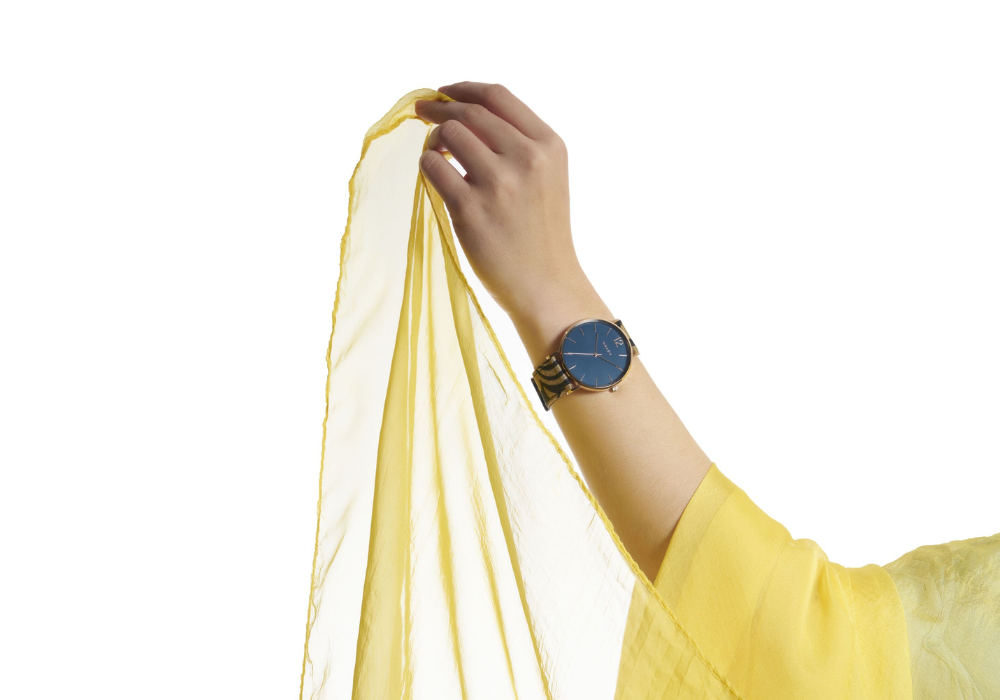
OBAKU Denmark cleverly recycles pre-loved saris from Mumbai into beautiful, colourful, and unique watch straps. Every sari makes about 100 straps – and no two are ever exactly the same.
In addition to upcycling, the brand launched its charitable Watches for Life programme in 2012; achieved Obton’s CO2 neutral emblem for offsetting 786,160 kg CO2 yearly through solar-plant investments; and supports the Recycle, Reduce and Reuse programme in its offices and factories.
Penny Goldstone, Marie Claire fashion editor and Sustainability Awards judge says: “I love the all-rounder approach to this business. The straps are stylish, use unwanted saris, and a percentage of the sales goes to supporting better education for children in Mumbai.”
Best sustainable high-street jewellery brand
Winner: With Love Darling
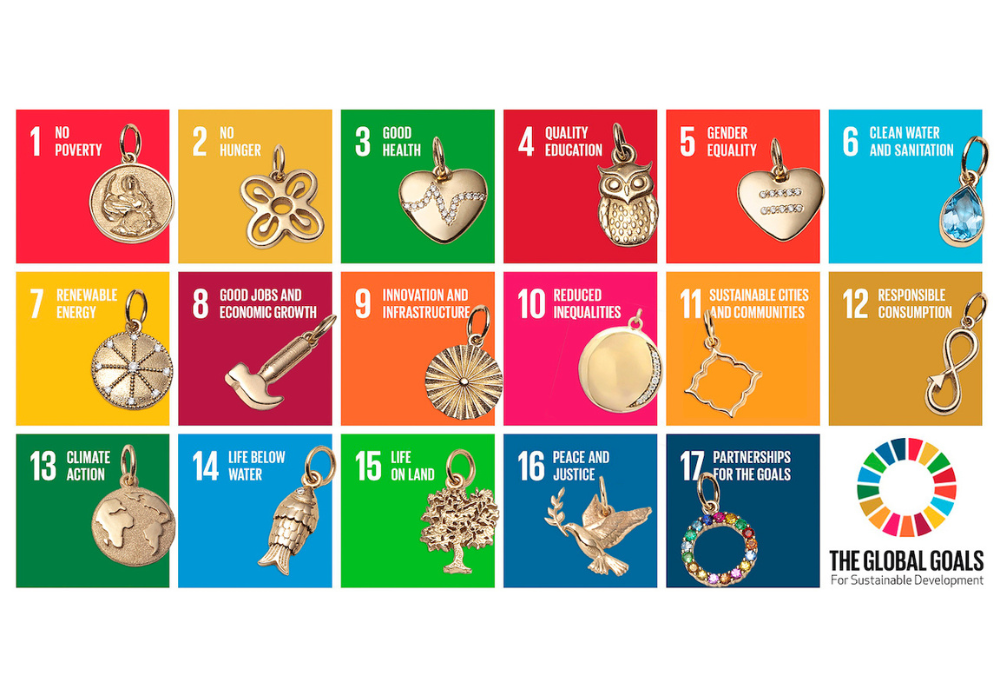
In Jane Goodall’s words: “You cannot get through a single day without having an impact on the world around you. What you do makes a difference, and you have to decide what kind of difference you want to make.” With Love Darling is a jewellery label that believes in wearing the change you want.
A carbon-neutral brand, all materials are recycled, all packaging is made from recycled paper, all workshops are Fairtrade, and the company’s artisans are paid in accordance with the Living Wage Index, too. Also good: With Love Darling jewellery is handmade and produced sustainably in workshops in developing countries, creating income and opportunity for some of the world’s most vulnerable people.
“A gorgeous jewellery company that is carbon-neutral, plants a tree with every order and gives a fair wage to women in rural areas of Kenya, China and India – what’s not to love?” says Goldstone.
Best sustainable luxury jewellery brand
Winner: Monica Vinader
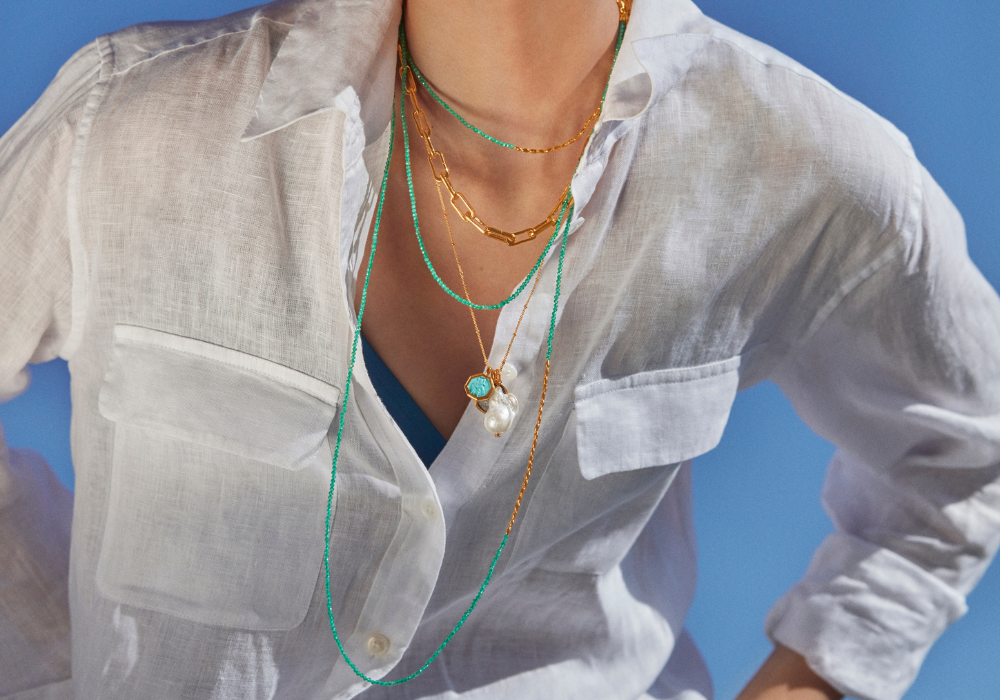
Sustainable jewellery brand, Monica Vinader, made the bold move to use only recycled gold and silver in the manufacturing of its jewellery, reducing carbon emissions by more than two-thirds in the process. By 2021, the brand had reduced its use of single-use plastic in the supply chain by almost 90%.
With a jewellery recycling scheme that encourages a circular economy, Monica Vinader offers lifetime repairs, a 5-year warranty on all products, and funds a biodiversity, carbon-capture project – preserving 7 hectares of former agricultural land in Holkham.
Walpole director and Marie Claire awards judge, Charlotte Keesing, places Monica Vinader as the firm winner of this category, citing “being accepted into the UN mentoring programme recently, clear journey and progress,” as key reasons for its success.
Highly commended: Matilde Jewellery
Best zero-waste brand
Winner: Upcycle Labs
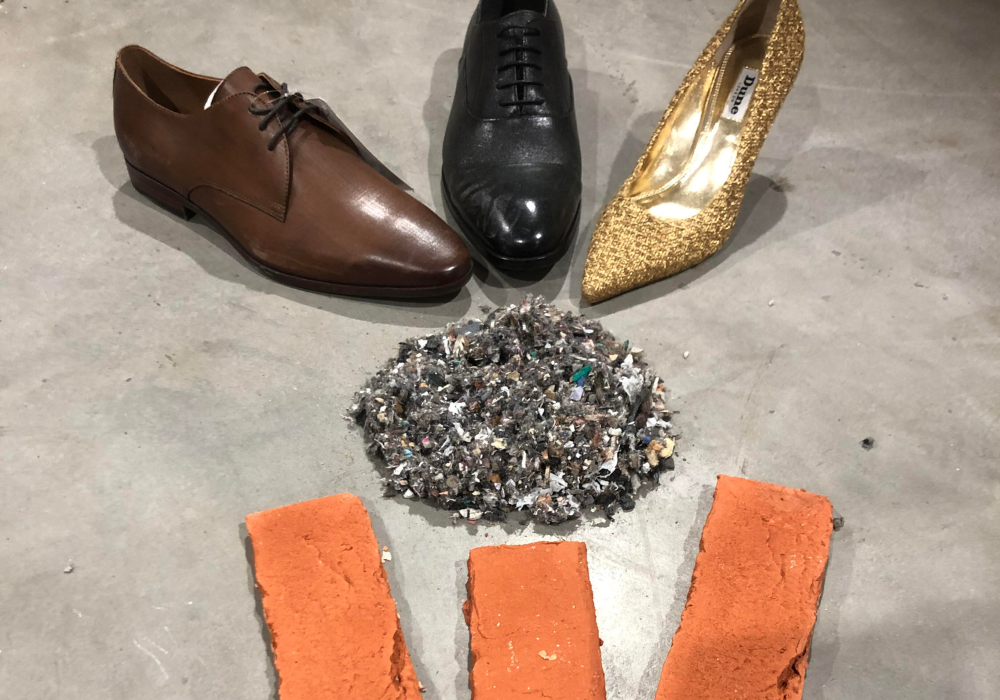
“There’s nothing Upcycle Labs can’t recycle and reuse to give them a new lease of life – whether that’s as decorative objects or store fittings,” says Goldstone.
From bags and dresses to shoes, lipsticks and jackets, Upcycle Labs takes fashion waste, such as customer returns and offcuts, and converts 100% of it back into products for resale using only water and calcium. Utilising a unique process, Upcycle Labs eradicates the need to burn waste or add to landfill ever again – because once the product has served its second useful life, it’s simply returned to be made into something else.
Best fashion innovation
Winner: unspun
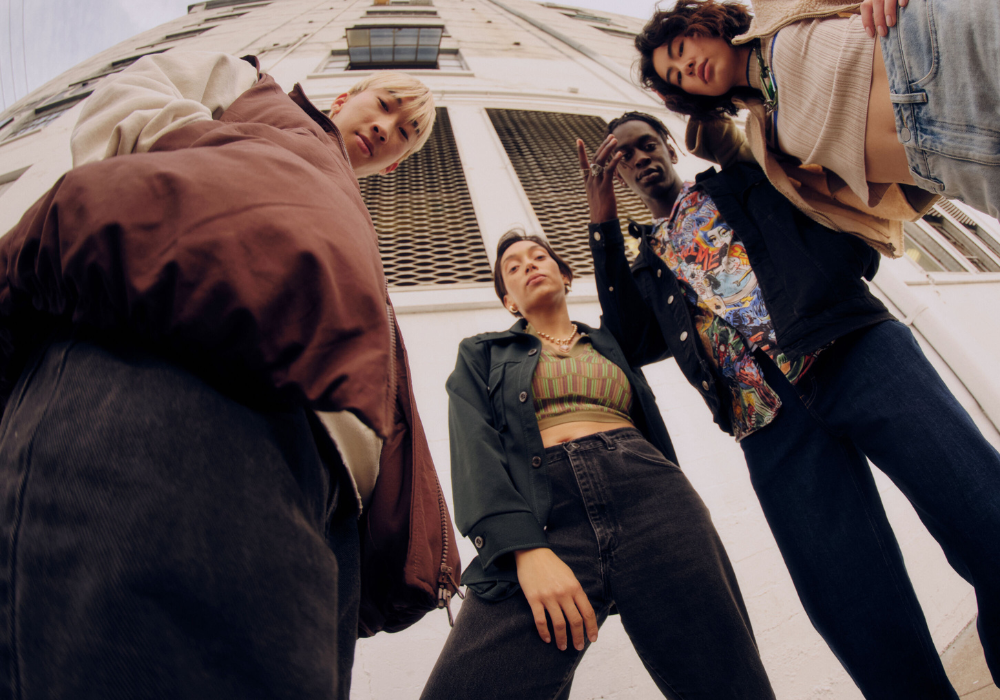
Unspun was founded on the question, “How might we build on-demand?”. Flipping the fashion industry’s practices on its head – so that nothing is produced until it’s needed – a customer purchases first and a product is made for them second.
Here’s how it works: unspun’s innovative software creates a perfect-fitting pattern from a customer’s body scan and chosen design, then its hardware takes that information to weave yarn into 3D forms – automating the clothing-production process, eliminating seams and eliminating waste.
Ten times faster than knitting, this invention brings a manufacturing and business model that is on-demand, custom-designed, custom-fitted, zero-inventory, zero-waste, seamless, and just plain genius to the market.
Host of the Good Influence podcast and Sustainability Awards judge Gemma Styles says: “A highly disruptive manufacturing innovation, the combination of body-scanning technology, 3D-weaving innovation and manufacture on-demand structuring [makes this] a very impressive entry.”
Highly commended: LOOP Digital Wardrobe
Best ethical brand
Winner: Pala Eyewear
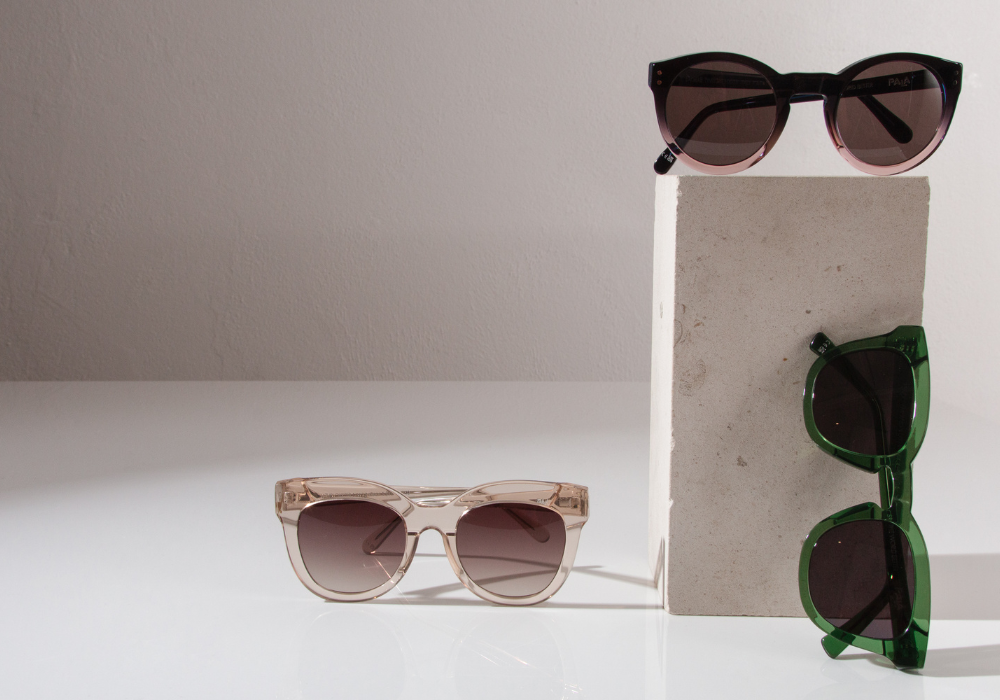
“Pala Eyewear truly gets me excited about what is possible in business with purpose. They show the power of putting people and planet first,” says MC Sustainability Awards judge and sustainability and brand consultant, Ele Ward.
Founded on a mission “to see the world better”, Pala encapsulates the B Corp values of a better outcome for people and planet. By buying a pair of Pala glasses, you’re not only buying sustainable eyewear, you’re also helping to fund vision centres, dispensaries and screening programmes across Africa.
A pair of spectacles is widely accepted as one of the most cost-effective poverty alleviating tools you can give someone, and with Africa home to 73% more blind and visually impaired people than any other region in the world, Pala focusses on where the problem is greatest.
Highly commended: Untouched World
Best vegan brand
Winner: OSIER
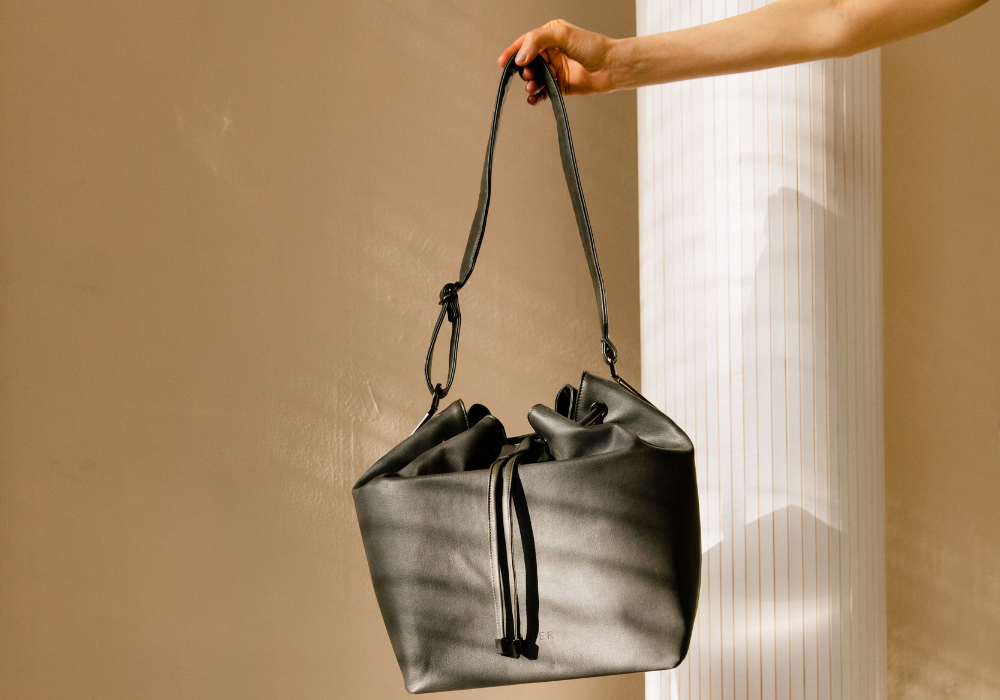
Producing chic bags made from apple peels and satin scarfs crafted from 100% recycled materials, OSIER is a creative, independent brand living for sustainable, timeless and ethical design. In fact, all of its products are designed and hand-manufactured in Europe and made from the finest vegan materials.
The mission? To revolutionise the fashion industry with a focus on sustainability, transparency and quality. From sourcing to manufacturing and packaging, OSIER’s products aren’t just ethical and vegan, but beautiful too.
“I love that every element of the bag has been considered in its sustainable production process, from the repurposed apple waste in the vegan leather to the 100% natural and non-toxic buttons,” says Goldstone.
Best supply chain
Winner: Bags of Ethics by Supreme Creations
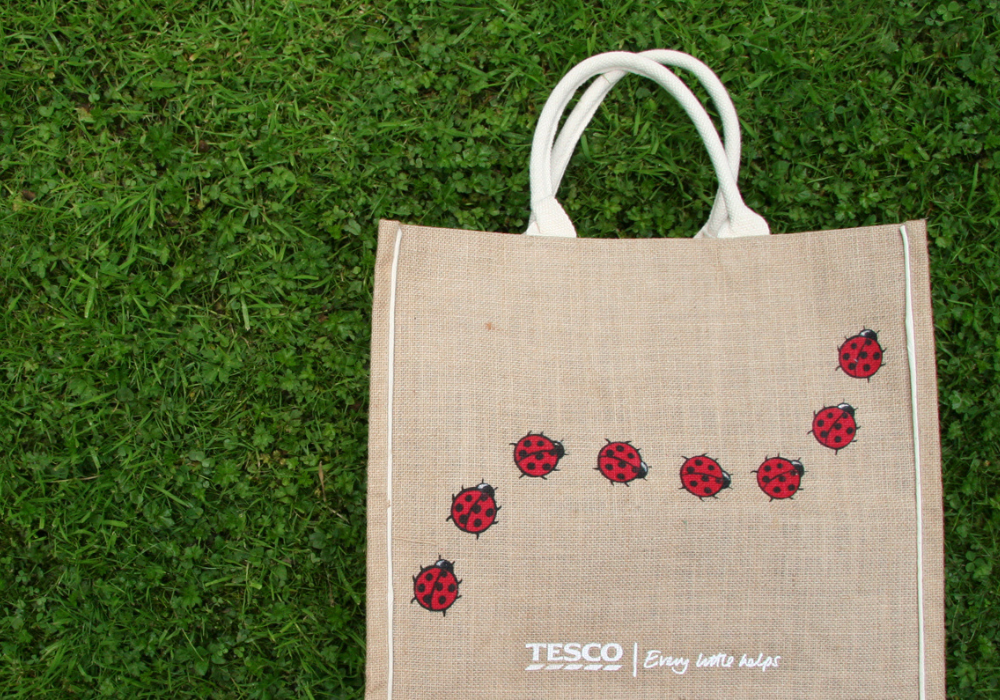
“This brand deserves to win for me,” says founder and CEO of Immaculate Vegan and MC awards judge, Annick Ireland. “It has been going for a long time and works with so many suppliers, so its impact is large and changing how other brands work. I love its commitment to plastic-free, vegan and sustainable materials, non-toxic dyes, sustainable manufacturing, creating local living-wage jobs in India, high level of factory auditing, and giving back programmes. This brand has it all.”
Indeed, for nearly 25 years, Bags of Ethics by Supreme Creations has been reducing single-plastic use and introducing sustainable, natural, and ethically made alternatives to disposable everyday items. In 2004, it was one of the key suppliers following the Courtauld Commitment (a pact made between government and retailers to reduce single-use plastic waste), to supply reusable shopping bags at affordable prices at the checkout for British retail. This is the label responsible for the famous Tesco ladybird jute bags, the first-ever Fairtrade cotton shopping bag with the Co-Op, and iconic totes for London Fashion Week, Nike, Dior and Selfridges. To date, it has helped reduce more than 16bn plastic bags and energised a reusable culture.
Highly commended: Reformation
Best for carbon footprint
Winner: Reformation
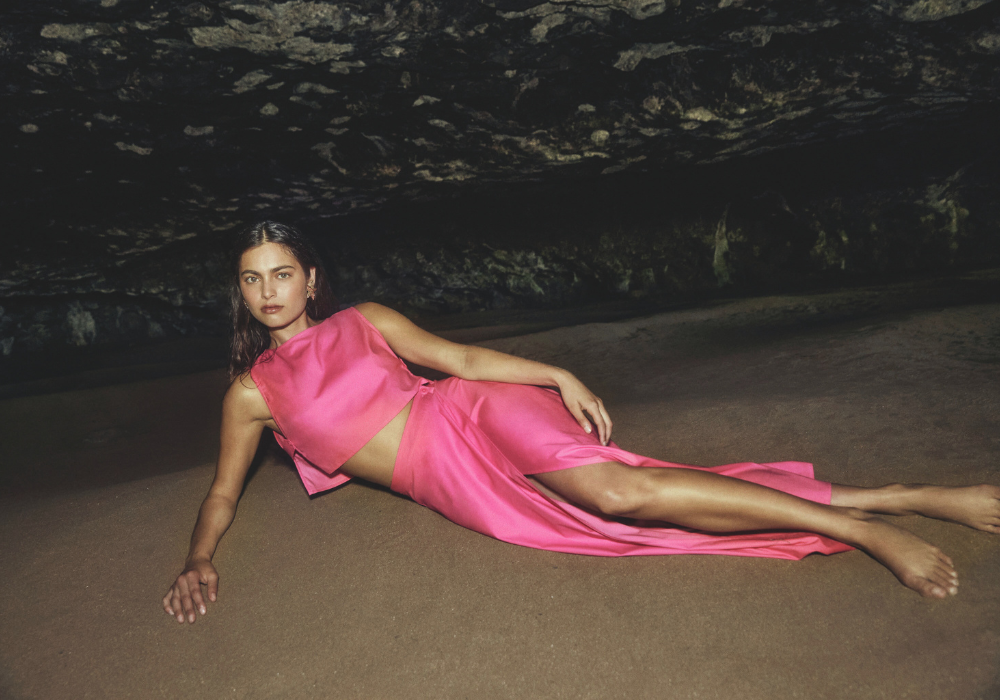
Since 2009, Reformation has pushed the fashion industry towards a more sustainable future, operating at 100% carbon-neutrality since 2015 (long before most brands), with the ambition of becoming fully Climate Positive by 2025 (a feat attempted by few).
Certified Climate Neutral, Reformation puts sustainability and carbon reduction at the core of everything it does, investing in green building infrastructure to minimise its waste, water, and energy footprints. In 2019, the label also launched Carbon Is Cancelled – a series of programmes that provide easier ways for everyone to connect to solutions. Now, online consumers can purchase Climate Credits that Native Energy will direct towards verified carbon-offset projects.
Sophie Robinson, business development manager on the Beauty, Wellbeing and Textiles team at Soil Association Certification and MC Sustainability Awards judge says: “This is my choice. A cyclical, holistic, and innovative approach which gives the consumer control and transparency. The use of independent third parties to verify claims is also positive.”
Highly commended: Vaayu
Best progress towards clothing circularity
Winner: BAM Bamboo Clothing
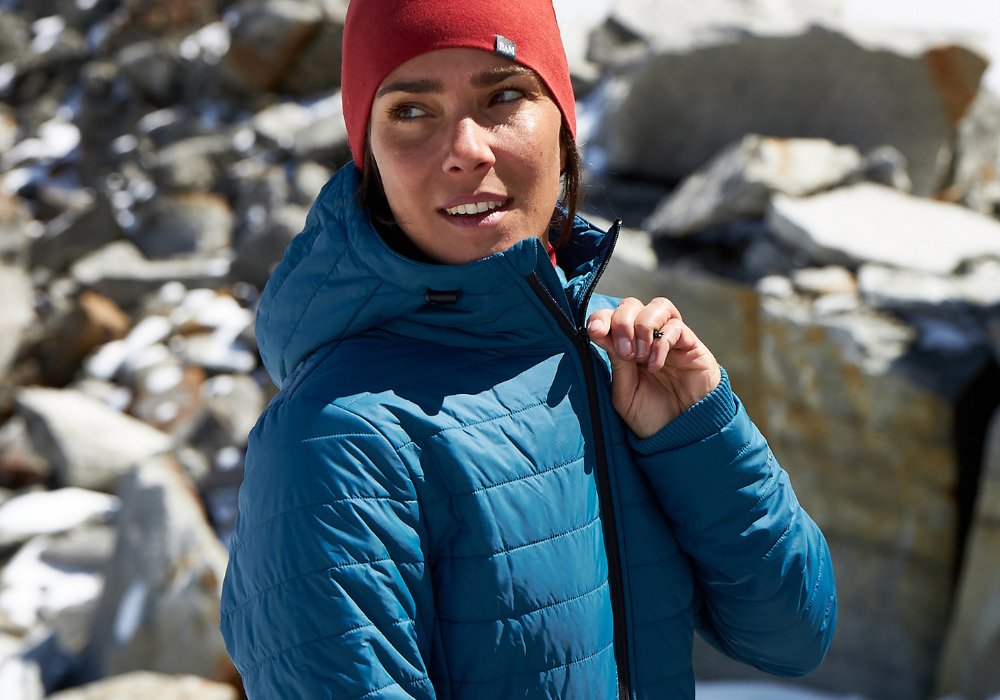
With a shocking 73% of clothing ending up in landfill or incineration plants, BAM created a first-of-its-kind, circular 73 Zero range that ‘closes the loop’. This means creating a zero-waste process using recycled materials to make clothing that can, at the end of its use, be 100% recycled again.
Offering a free take-back scheme for its 73 Zero range, BAM jackets have a QR code printed on the inside, so even if you buy it second-hand, you can send it to the right place to be recycled.
Better still, the 73 Zero insulated jacket retails at £165 (whereas similar jackets that don’t close the loop cost upwards of £400), making circular clothing more affordable, too.
“I love this brand for looking at alternative materials that are better for the planet,” says Rush.
Highly commended: WearMyWardrobeOut and MariaLoriaDesigns
Best progress towards footwear circularity
Winner: schuh
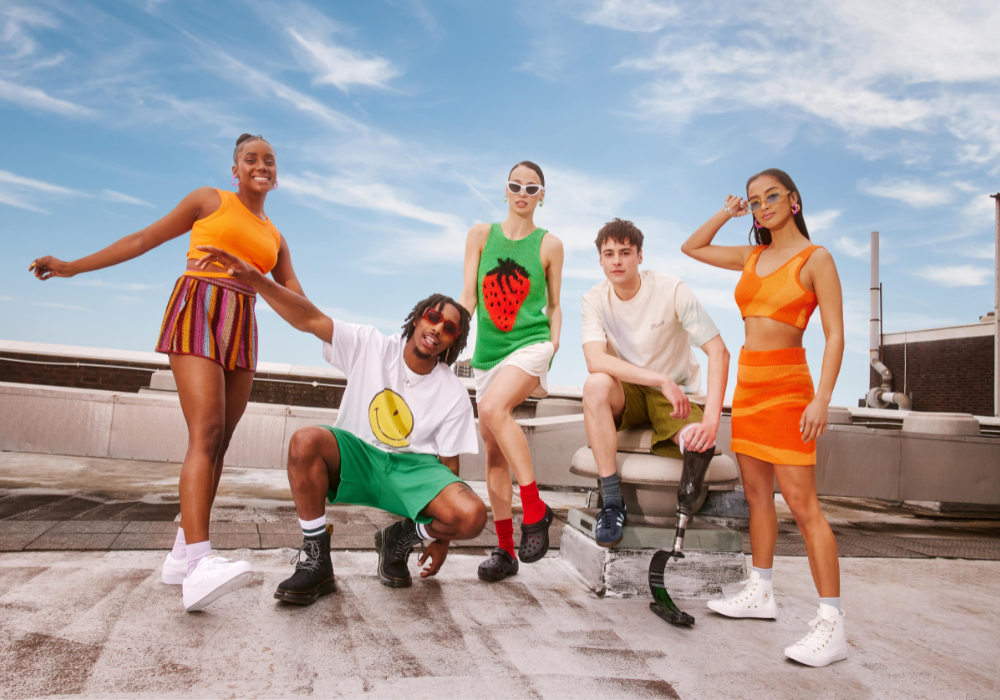
As a brand, schuh isn’t just a carbon-neutral organisation, it’s also big on encouraging reuse and recycling. Launched in October 2019, the Sell Your Soles scheme allows customers to hand in their unwanted pairs of shoes to schuh stores. Meanwhile, Too Big For Your Boots gives customers the opportunity to donate outgrown kids footwear – and the brand accepts footwear donations regardless of where they were initially purchased and irrespective of their condition.
Both initiatives are run in partnership with textile-reuse experts Recyclatex and offered across all 123 stores in the UK and Ireland. Plus, for every tonne of shoes collected, Recyclatex donates a sum of money to schuh, which is then passed on to its sustainability charity of choice, World Land Trust.
Rush says: “I love that the campaign is up-front and centre and looks at changing consumer behaviour around recycling.”
Best for sustainable fabric
Winner: Nobody’s Child
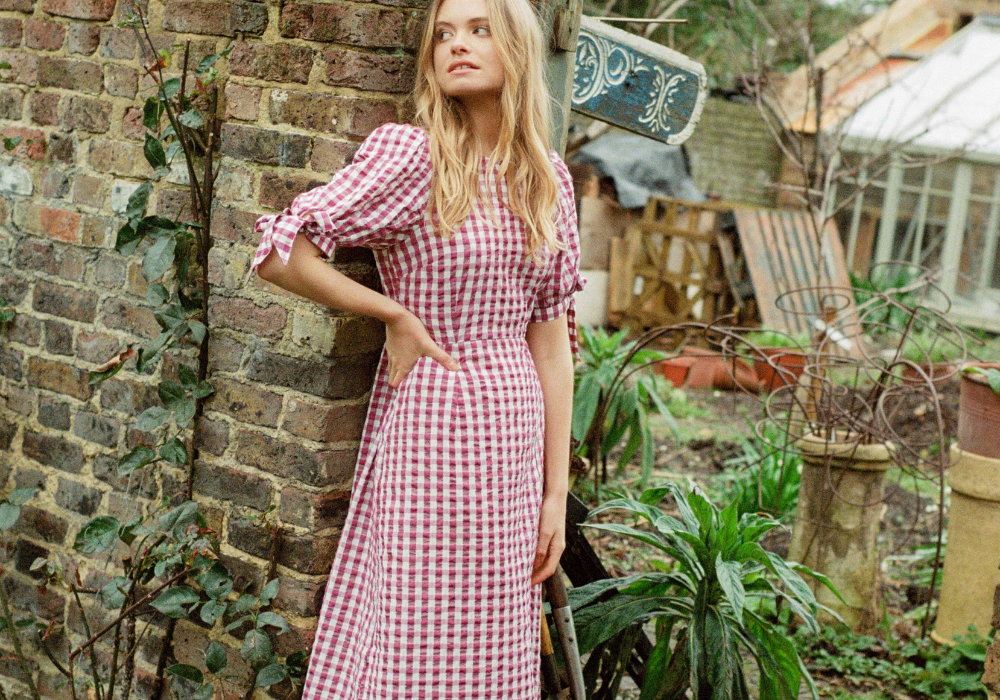
London-based fashion label, Nobody’s Child is aiming to revolutionise women’s fashion by making responsibly made – and affordable – clothes. Indeed, 93% of its current collections are made using responsible fabrics, such as Lenzing EcoVero, organic and transitional cotton, and recycled synthetics.
On top of its commitment to sustainable fabrics, the company has also partnered with an independent third-party organisation to map out its end-to-end carbon emissions; invested in circularity; joined forces with the online resale platform Re-Fashion to give clothes a second chance; and funded reforestation in partnership with TreeSisters.
“Nobody’s Child takes a pragmatic approach to materials choice, with clear guidance on preferred and banned materials. Its commitment to improvement shows in the use of transitional cotton and limited use of recycled polyester,” says Lena Staafgard, chief operating officer at Better Cotton and MC awards judge.
Highly commended: Rolling In Roses
Best sustainable clothing and accessories brand for kids
Winner: Little Green Radicals
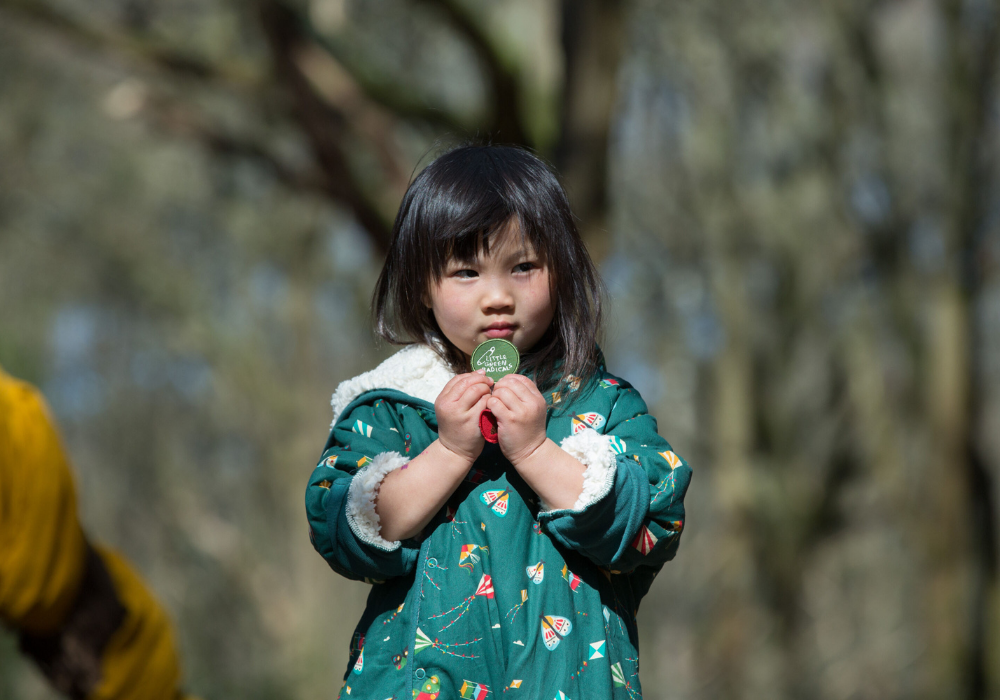
Little Green Radicals is blazing a trail for the ethical fashion revolution with its long-lasting playwear. A Fairtrade pioneer, it became one of the first companies to use the Fairtrade-certified cotton label in 2005.
The cotton used is 100% organic, which is better for kids, better for farmers and better for the planet, as it’s grown without harmful pesticides, uses less water and has less impact on the environment.
The SuperLoop initiative also gives customers money back for returning pre-loved clothes, and keeps clothes out of landfill by renting them out. Meanwhile, the label’s planet-friendly recycled rainwear has helped save almost 90,000 plastic bottles from landfill, and its latest innovations include an adaptability range for children with disabilities, recycled nylon swimwear, plus an expanded range of products made from leftover fabrics.
“Organic, plastic-free toys, recycled rainwear, compostable bags. What’s not to love?” asks actor, Woodland Trust ambassador and Sustainability Awards judge, Charity Wakefield.
Highly commended: Pop My Way
Best rental brand for kids
Winner: Babu
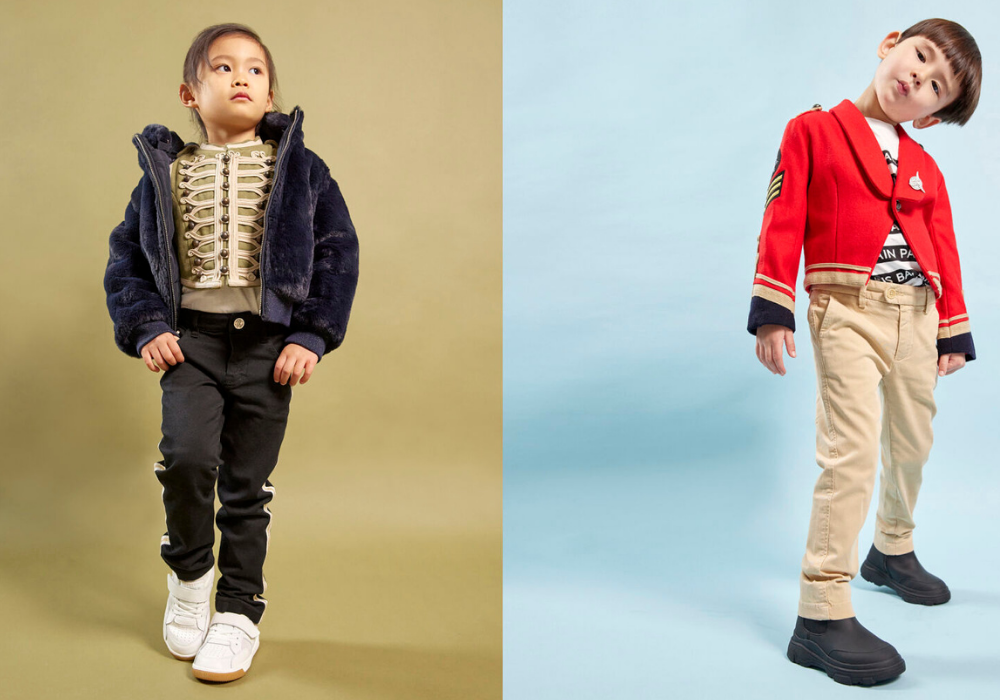
“These children are going be better dressed than all of us,” says Ashlee Piper, sustainability expert, author, speaker, and MC judge. “Babu definitely serves a more niche market, both with its offerings (designer kids’ clothes) and the service’s cost (about as much per week as some services are per month). But I appreciate its approach to creating curated capsules each month for different children’s ages and genders, as opposed to having a bevvy of clothing folks can choose from – and its cleaning and recycling practices are extensive.”
Babu is the UK’s first rental subscription service focusing exclusively on designer baby and kids’ fashion. Designed for boys and girls aged 0-4, Babu offers monthly capsule collections of carefully selected pieces, conveniently delivered to your doorstep. Plus, the label has partnered with Xetrov to ensure that none of its worn-out clothes ever end up in landfill – no matter what fabric they are made from.
Highly commended: SuperLooper
Best re-commerce brand
Winner: Go Thrift
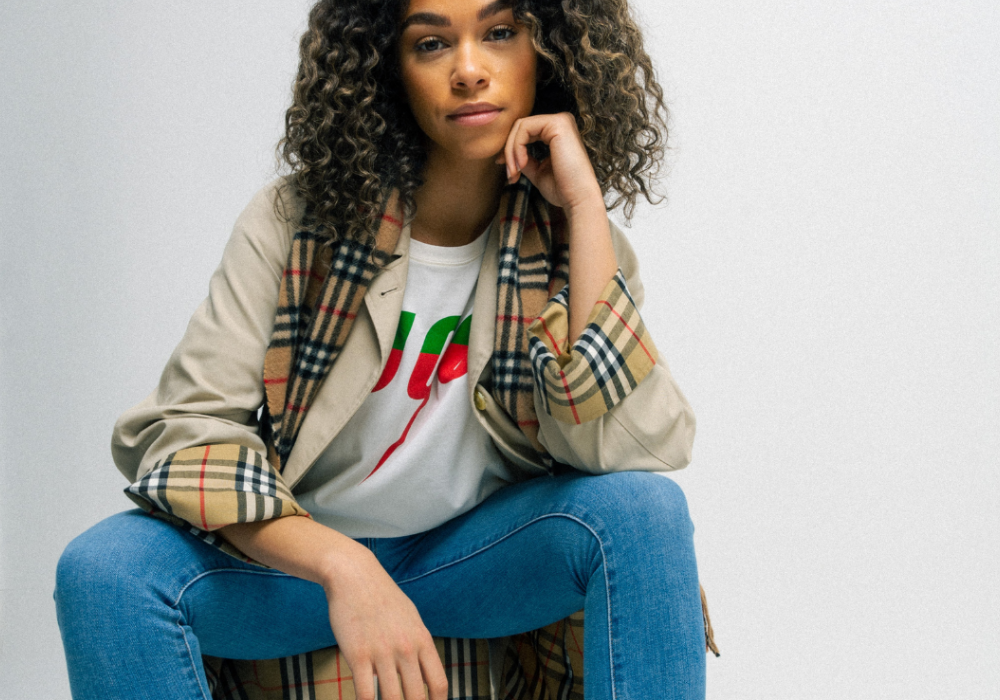
“Second-hand shopping is ideal for reducing waste and extending the lifespan of items, providing successful platforms for the resale market is certainly positive for the planet,” says Styles.
Go Thrift started out as a husband-and-wife team selling a few vintage dresses on eBay, and has now become one of the UK’s leading used-clothing retailers, offering an alternative to fast fashion and all its pollution. Genius.
Highly commended: Parker Lane Group
Best sustainable small business (clothing)
Winner: Hanna Fiedler
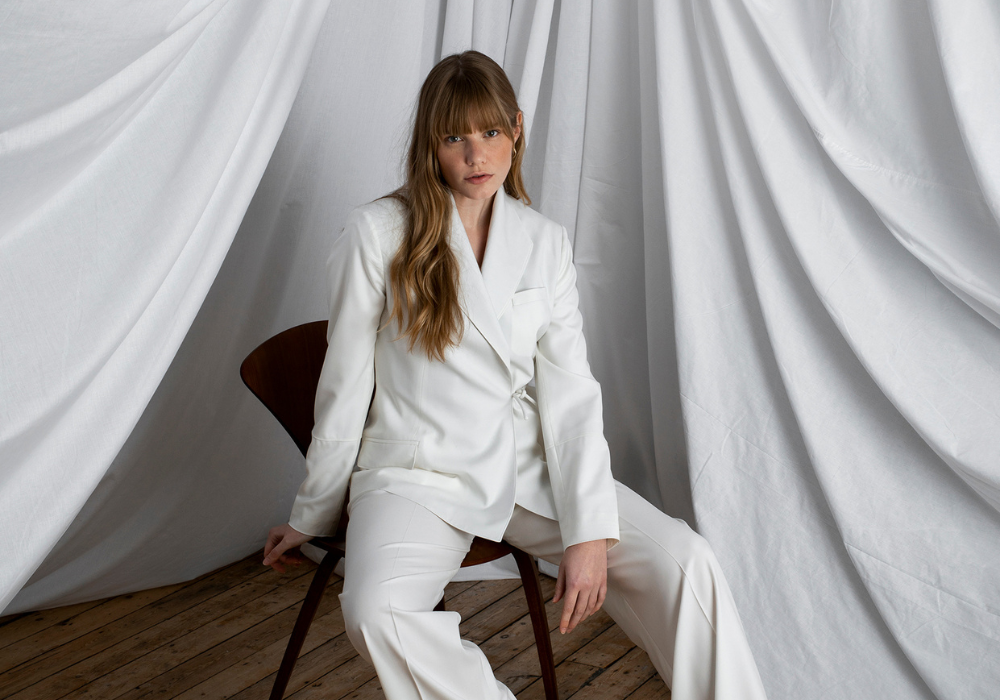
Inspired by the modern culinary movement – where chefs’ tables and open interaction between the chefs and guests have revolutionised the dining experience – Hanna Fiedler aims to create a unique and engaging luxury experience that takes clients on a journey, sharing the love and attention to detail that goes into the creation of each of its designs.
Constantly striving to improve the way it works and finding solutions to be a more responsible, mindful brand with a positive impact on the fashion industry, designs are not only beautiful but filled with intention and purpose.
“Hanna Fiedler’s transparent approach to impact reporting has to be commended. With objectives, targets, challenges and SDGs all clearly communicated, customers and suppliers can get a better understanding of where the brand is now and how they plan to improve. Love it!” says Hannah Reiss, marketing and communications manager at B Lab UK and a MC awards judge.
Highly commended: rho
Best sustainable small business (underwear)
Winner: Eartha Underwear
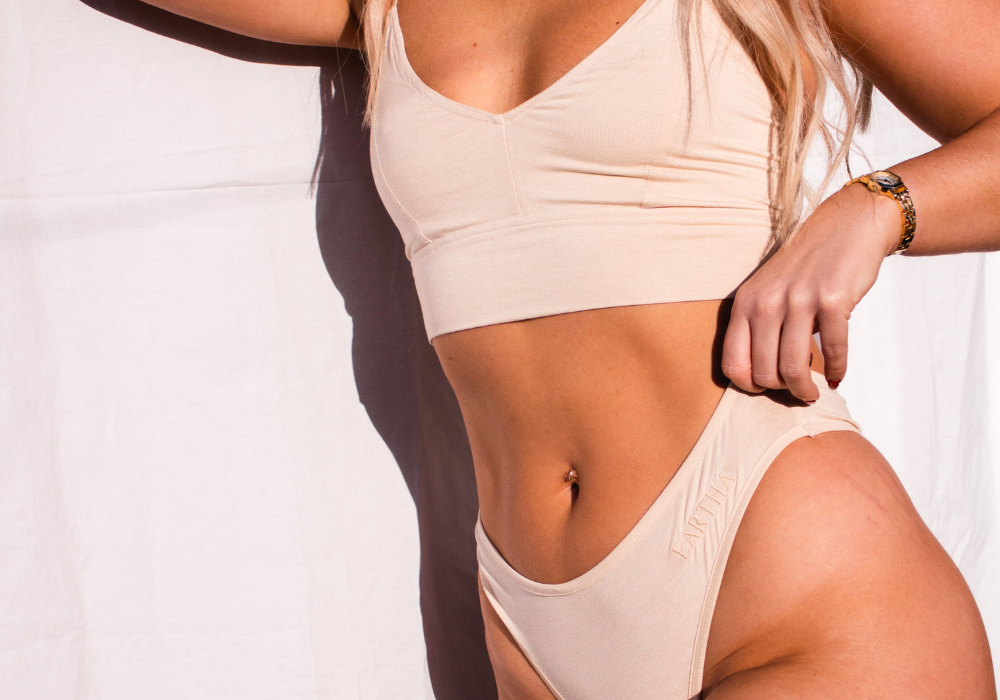
From ensuring the farmers producing fabrics are paid and work in safe conditions, to limiting the impact on marine life when the garment is washed by consumers, Eartha Underwear garments are designed to last.
Not only does Eartha use plastic-free packaging and innovative materials, but it also donates to multiple reforestation projects and is currently developing a framework with Leeds Business School to make sustainability implementation easier and more accessible.
“Every aspect of Eartha Underwear has been considered to make sure it is impacting the planet as little as possible. I like that the collections are only available in limited runs and that the company strives to use innovative materials, too. I look forward to following their journey towards creating 100% biodegradable underwear,” says Head.
Highly commended: ONE Essentials
Best sustainable small business (accessories)
Winner: LUXTRA
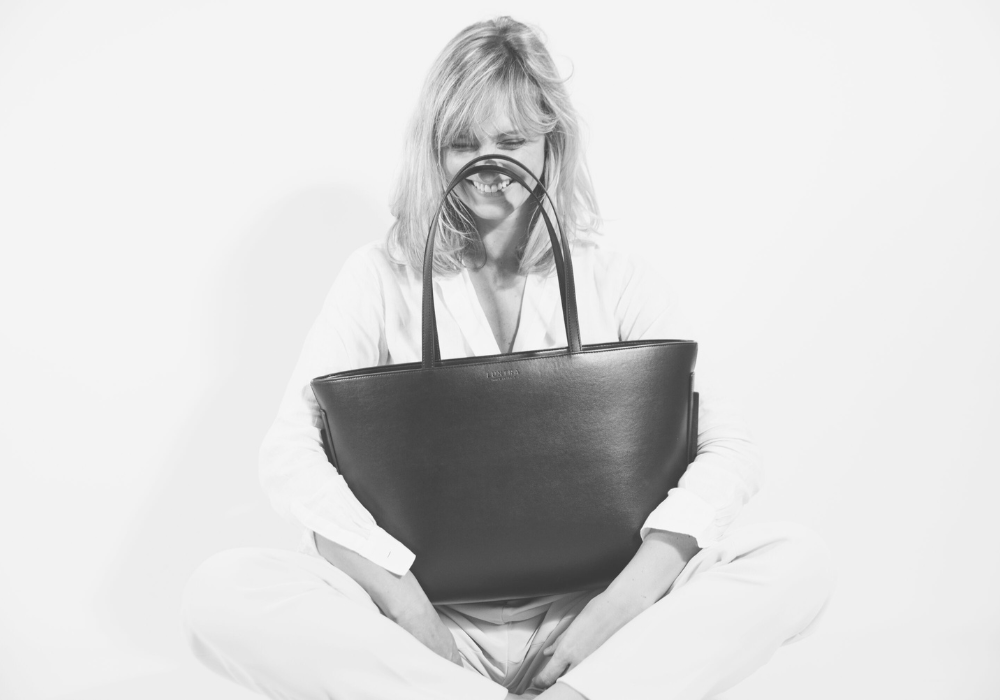
Using plant-based vegan leathers to make timeless accessories, LUXTRA’s range of handbags, backpacks, wallets and other small accessories for both men and women is crafted from vegan-friendly materials made with pineapple, apple, cactus, and corn-based ‘leathers’. Hand-made in Italy, items can also be personalised by London artist, Rachel Joy Price – famed for her bright and bold hand-painted lettering – for special, one-of-a-kind gifts. A certified B Corp, LUXTRA shows it’s possible to create a brand that is kinder; one that can produce beautiful products (that last a lifetime), while also taking care of people and the planet.
“It’s great to see a small company with ambition and innovation at its heart. Whilst continuously pioneering plant-based materials, LUXTRA is considering the full Life Cycle Assessment (LCA) of its products and the ways in which it can support local communities,” says Reiss.
Highly commended: Lilac Tree
Best sustainable small business (kids)
Winner: SuperLooper
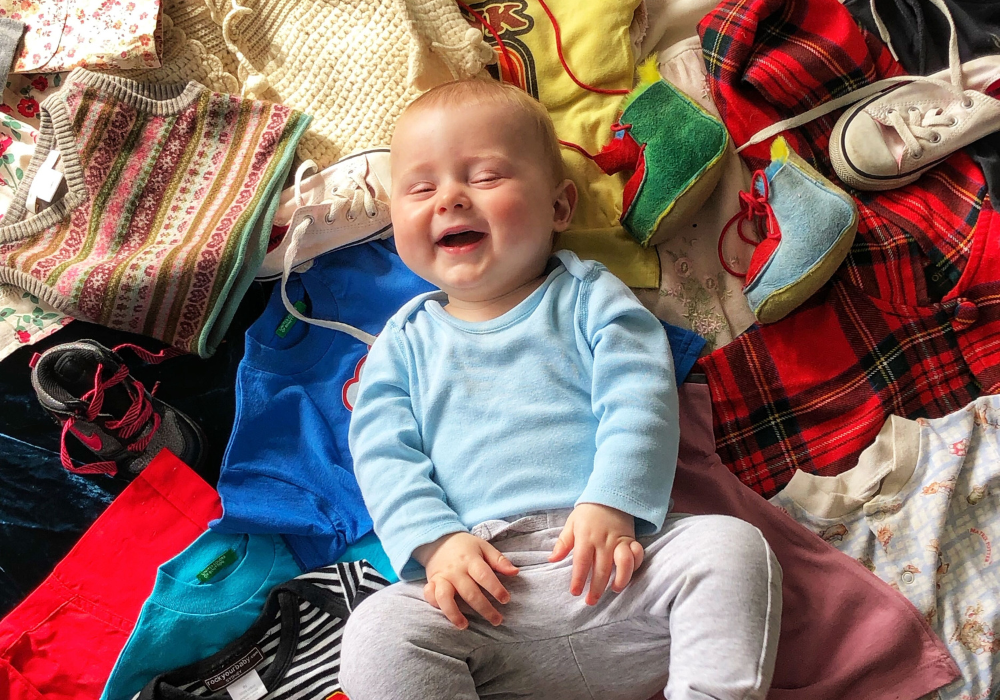
Renting is a no-brainer for parents who love fashion but feel bad about buying too much. As we know, babies grow very quickly, so instead of buying and owning their clothes that are only worn a few times, why not rent them for as long as you need, then swap them for the next size up?
SuperLooper is a pre-loved baby-clothing rental service encouraging families to recycle hardly worn clothes and keep them in circulation for longer. In short, this is a circular, economy-inspired, anti-fast-fashion social enterprise created so parents can dress their babies in lots of lovely clothes without the guilt of over-consuming.
“SuperLooper is a great example of how simple waste reduction can be. I love their encouragement of circularity and, further, that they’ve kept rental costs down to make a more eco-approach affordable for all,” adds Head.
Marie Claire UK has determined the award winners in accordance with the judging criteria and with the information provided by the entrants. All information provided by the winning brands is published in good faith.
-
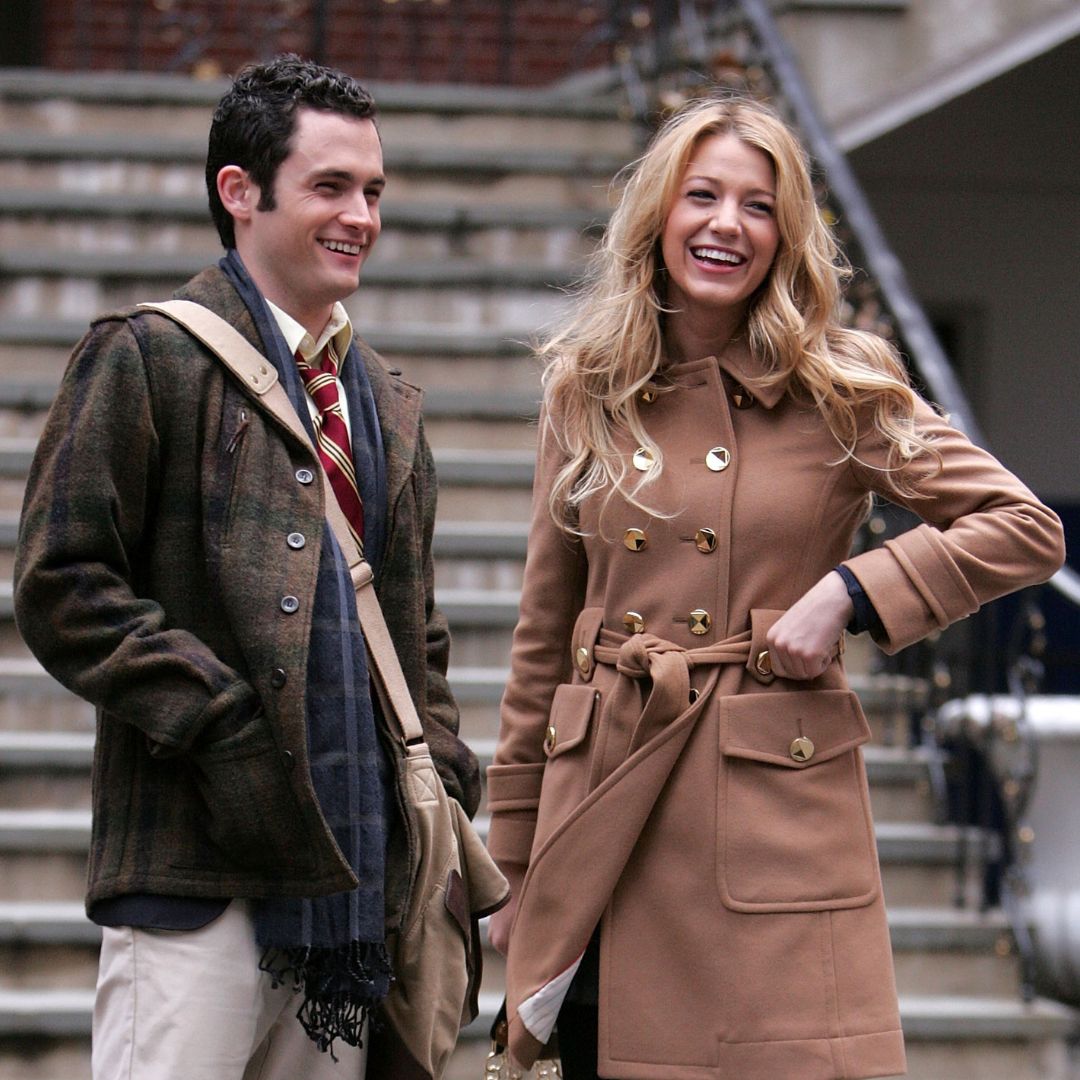 Penn Badgley and Blake Lively kept their breakup a secret from the Gossip Girl cast and crew - here's what we know about their former relationship
Penn Badgley and Blake Lively kept their breakup a secret from the Gossip Girl cast and crew - here's what we know about their former relationshipBy Jenny Proudfoot
-
 Spring has finally sprung - 6 best outdoor workouts that are totally free and boost both body and mind
Spring has finally sprung - 6 best outdoor workouts that are totally free and boost both body and mindSoak in the nature and boost Vitamin D *and* endorphins.
By Anna Bartter
-
 This iconic rose perfume is a compliment magnet—it makes me feel ‘put together’ after just one spritz
This iconic rose perfume is a compliment magnet—it makes me feel ‘put together’ after just one spritzGrown-up and elegant, yet not at all dated.
By Denise Primbet
-
 It's official: these are the 100+ most sustainable brands in the world for 2024, according to top pros
It's official: these are the 100+ most sustainable brands in the world for 2024, according to top prosMeet the winners of this year's Marie Claire UK Sustainability Awards.
By Anna Bartter
-
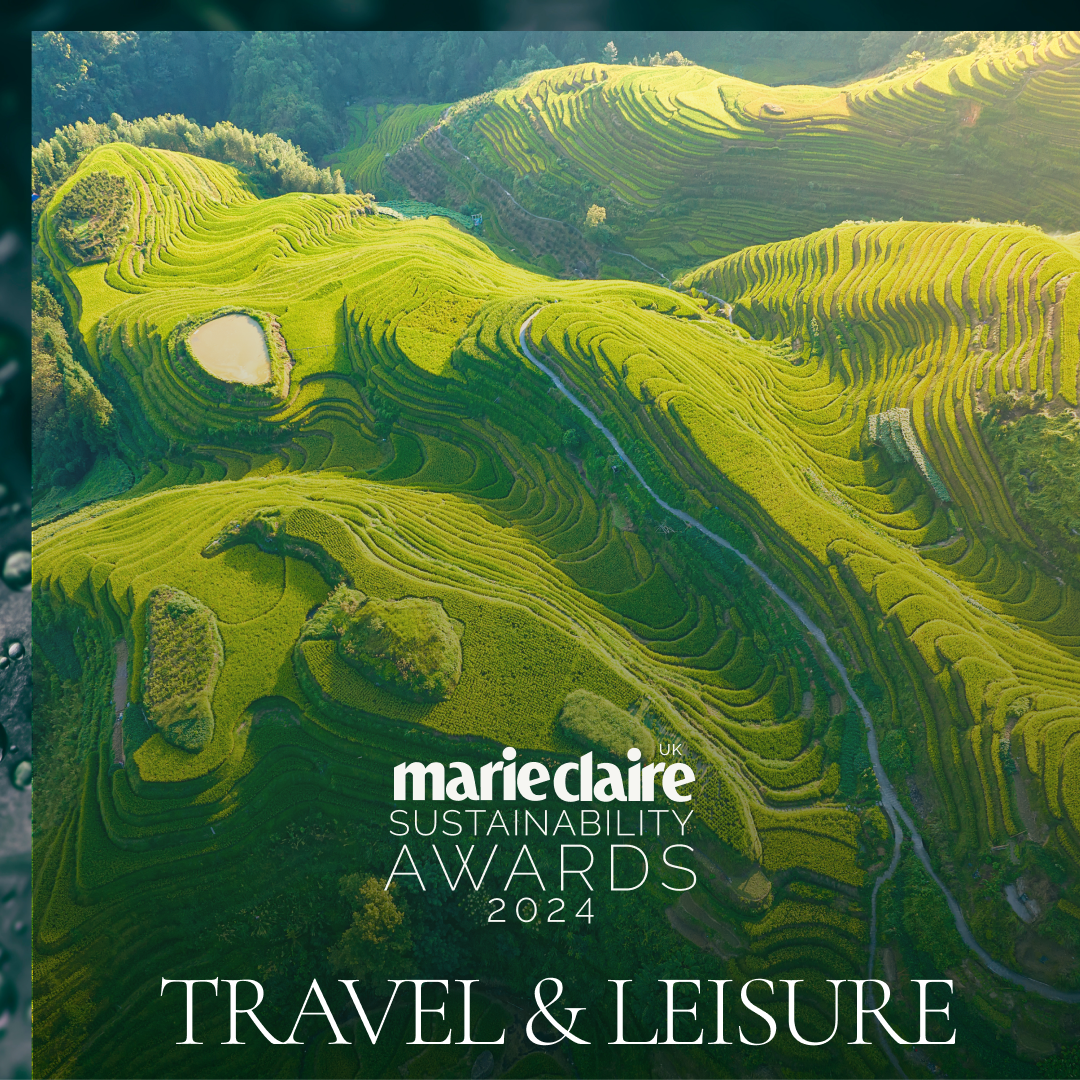 Yes, travelling more sustainably is possible – and our 2024 Sustainability Award winners make it that bit easier
Yes, travelling more sustainably is possible – and our 2024 Sustainability Award winners make it that bit easierMeet the best eco-friendly travel and lifestyle brands to have on your radar.
By Anna Bartter
-
 Look no further: these are the 7 most sustainable motor brands to opt for in 2024
Look no further: these are the 7 most sustainable motor brands to opt for in 2024Driving and sustainability needn’t be mutually exclusive, as these brands show.
By Anna Bartter
-
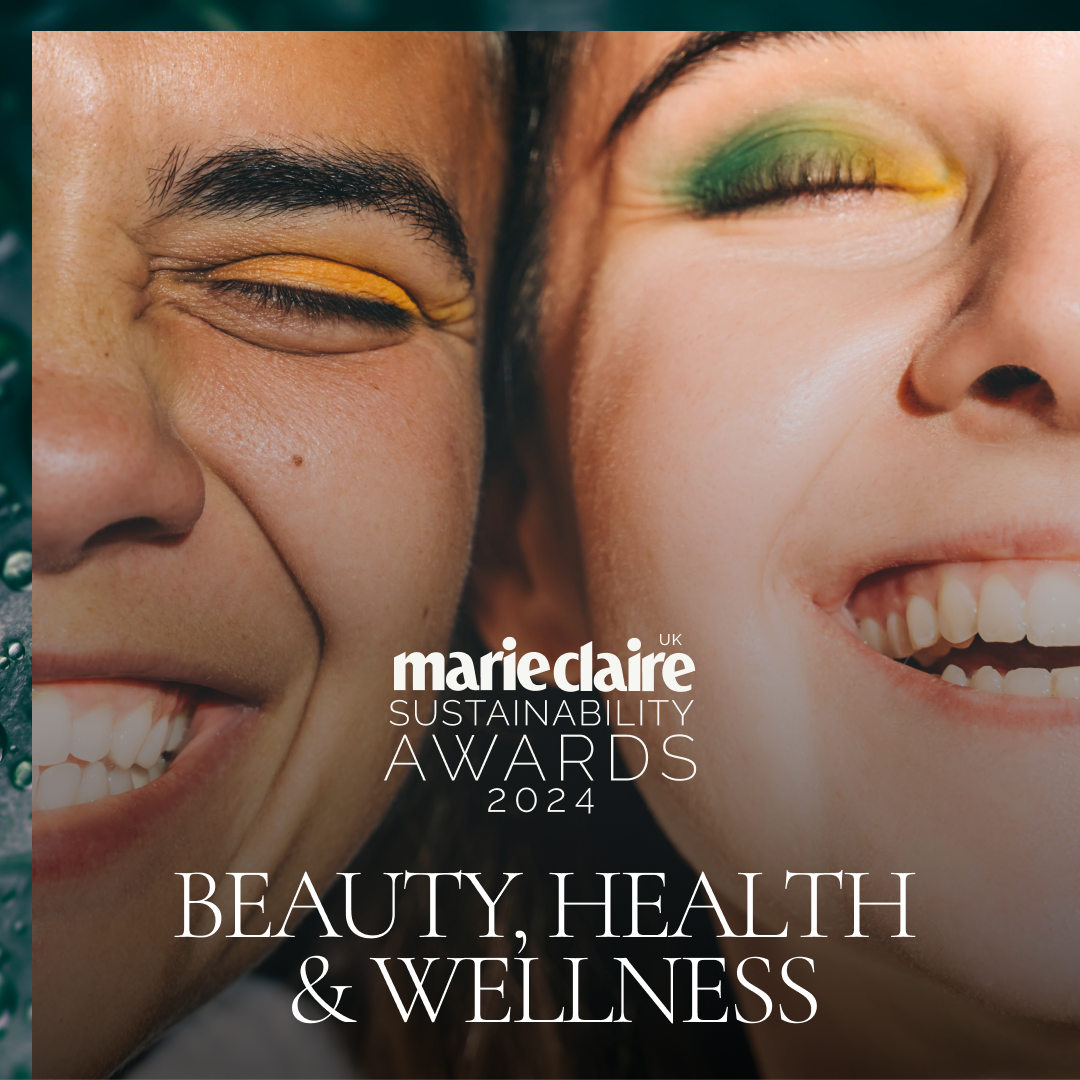 Want to shop sustainable beauty? These are officially the best brands to invest in this year
Want to shop sustainable beauty? These are officially the best brands to invest in this yearAs selected by top industry experts.
By Tori Crowther
-
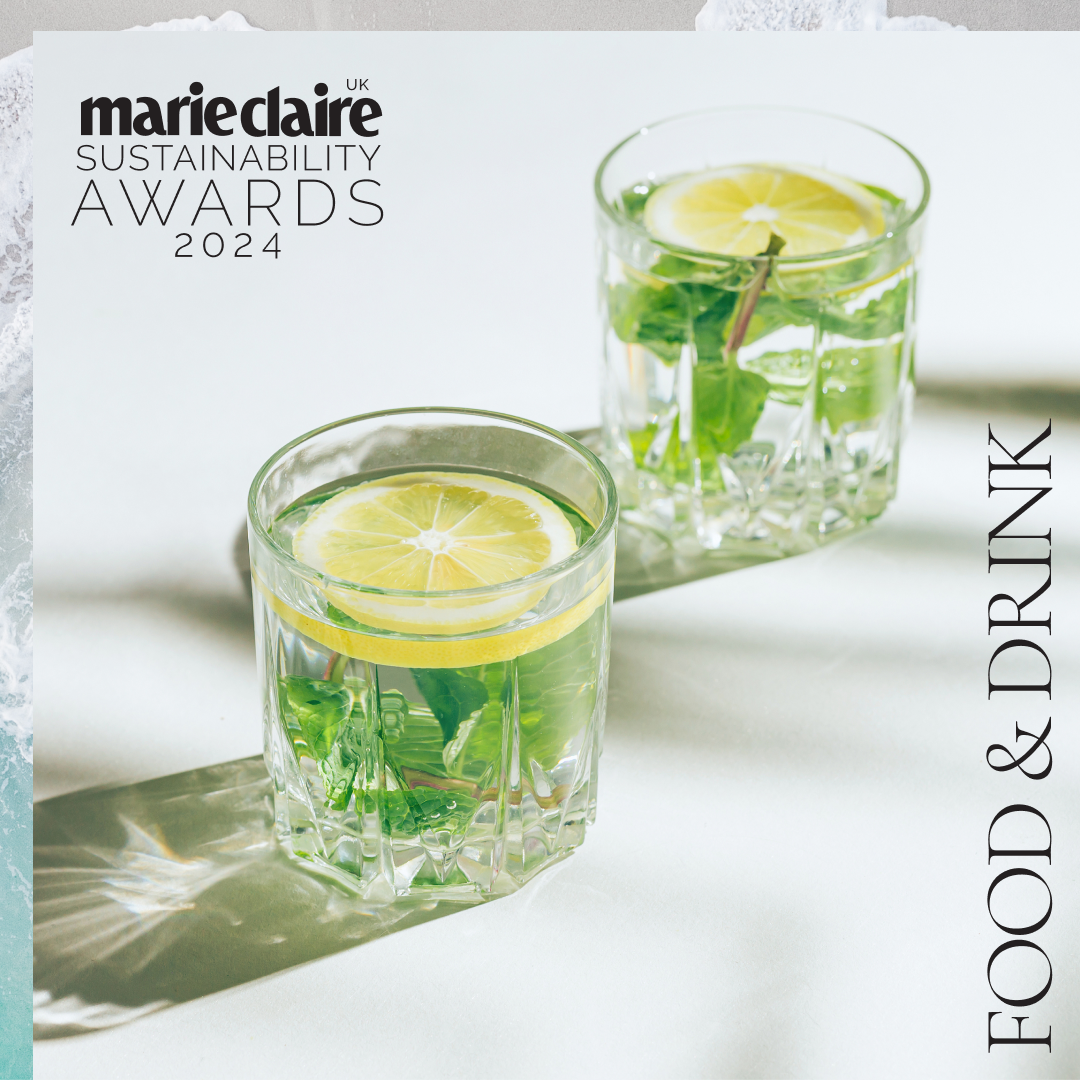 Keen to eat more sustainably? Meet the food and drink brands going to extra mile for people and planet
Keen to eat more sustainably? Meet the food and drink brands going to extra mile for people and planetMeet the brands leading the charge for planet-friendly food and drink
By Anna Bartter
-
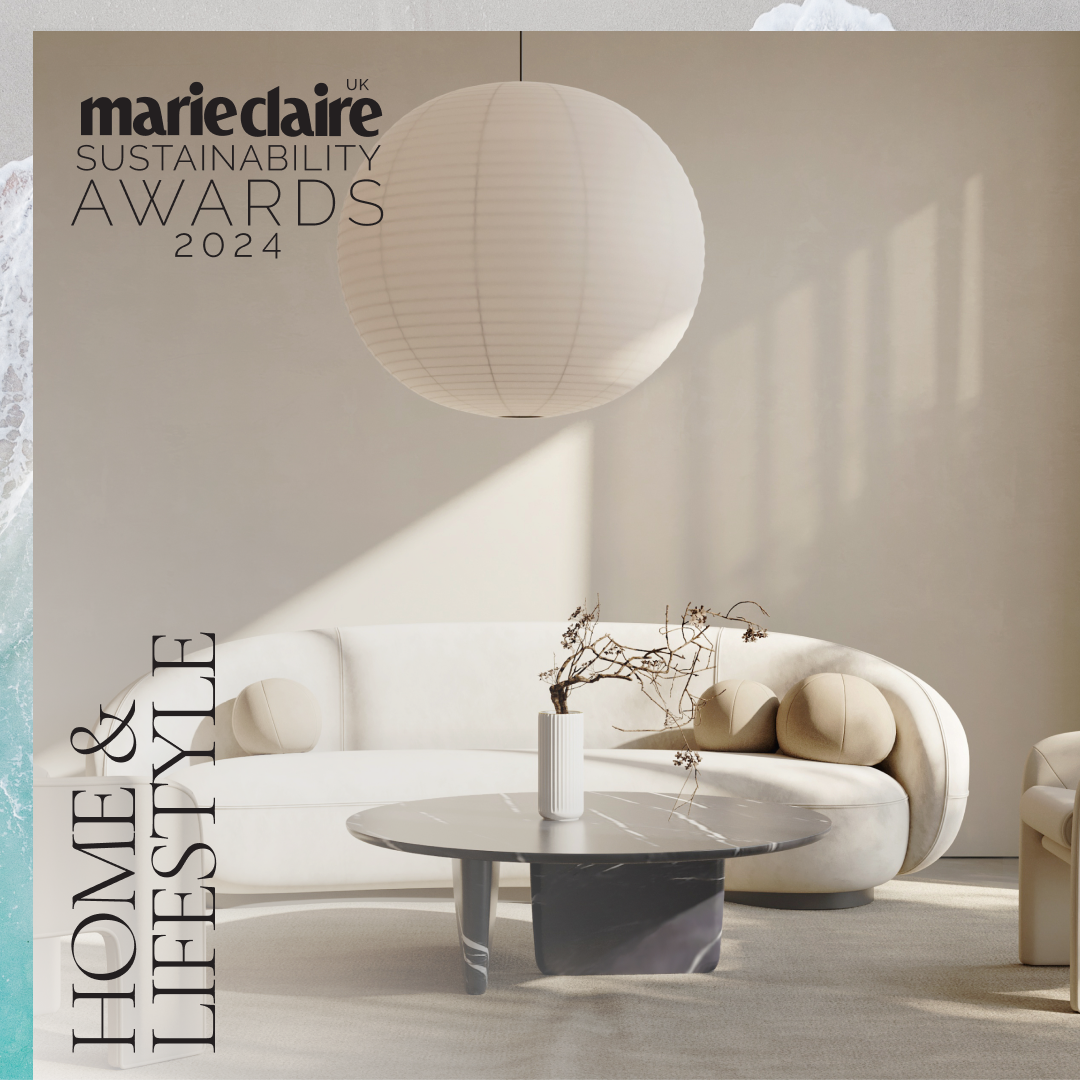 Looking for ways to live more sustainably? These are the 9 best eco-friendly home brands, according to top experts
Looking for ways to live more sustainably? These are the 9 best eco-friendly home brands, according to top expertsSustainability really does start at home – and these brands make it simpler.
By Anna Bartter
-
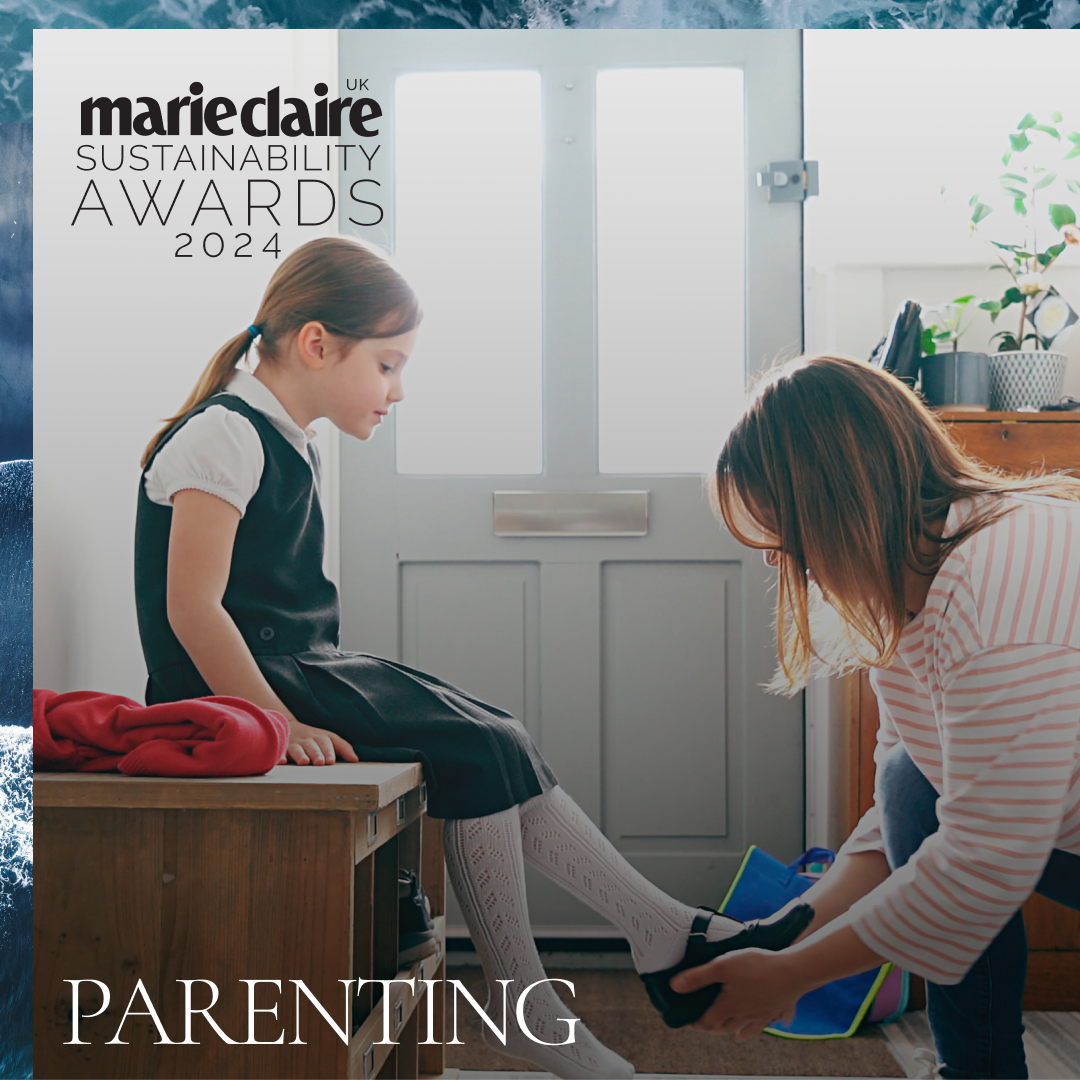 No, motherhood doesn't need to be wasteful - thanks to our favourite planet-friendly parenting products
No, motherhood doesn't need to be wasteful - thanks to our favourite planet-friendly parenting productsHaving a baby needn’t cost the - literal - earth.
By Anna Bartter
-
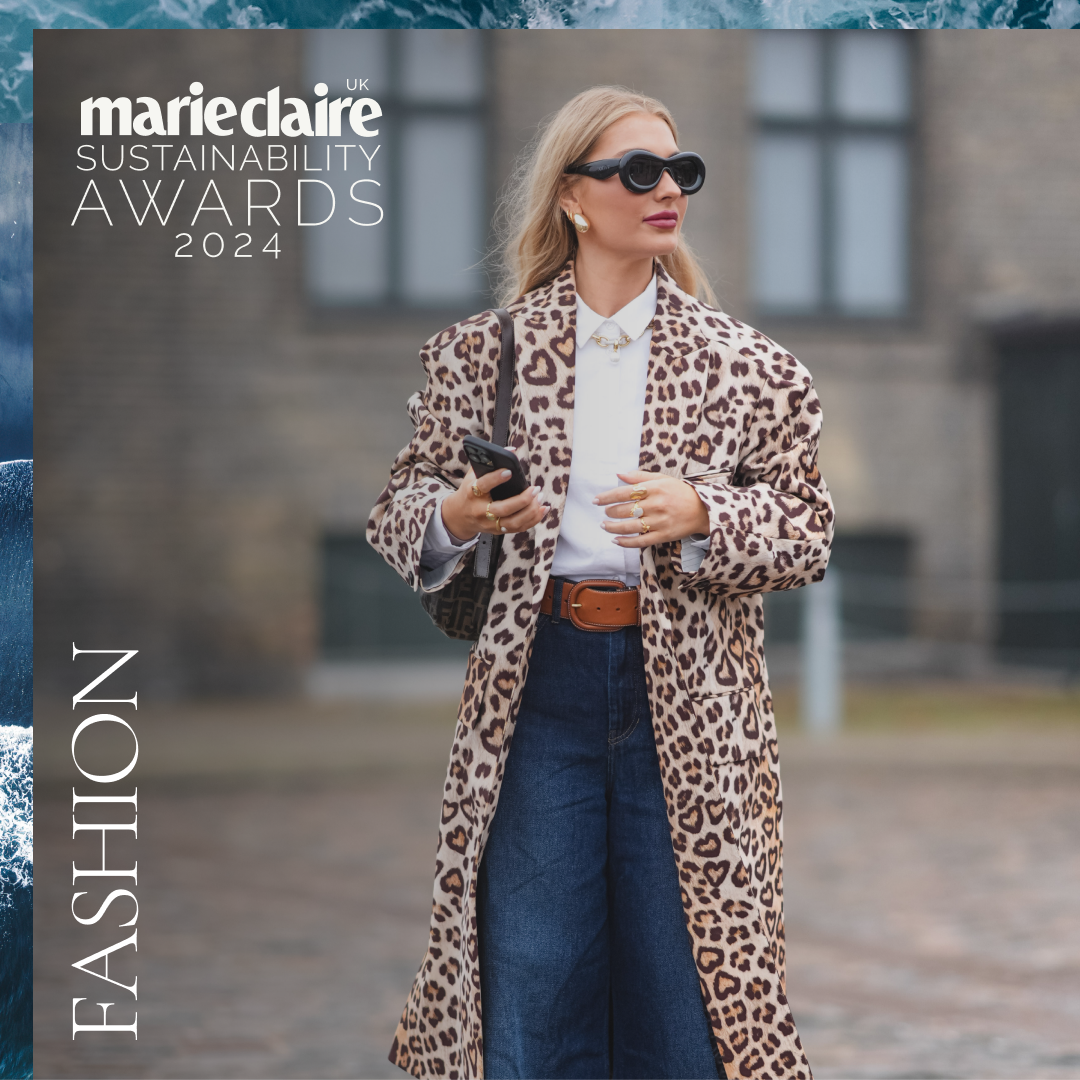 Drumroll, please: introducing the most sustainable fashion brands to have on your radar
Drumroll, please: introducing the most sustainable fashion brands to have on your radarConscious, considered clothing brands are making fast fashion a thing of the past
By Anna Bartter
